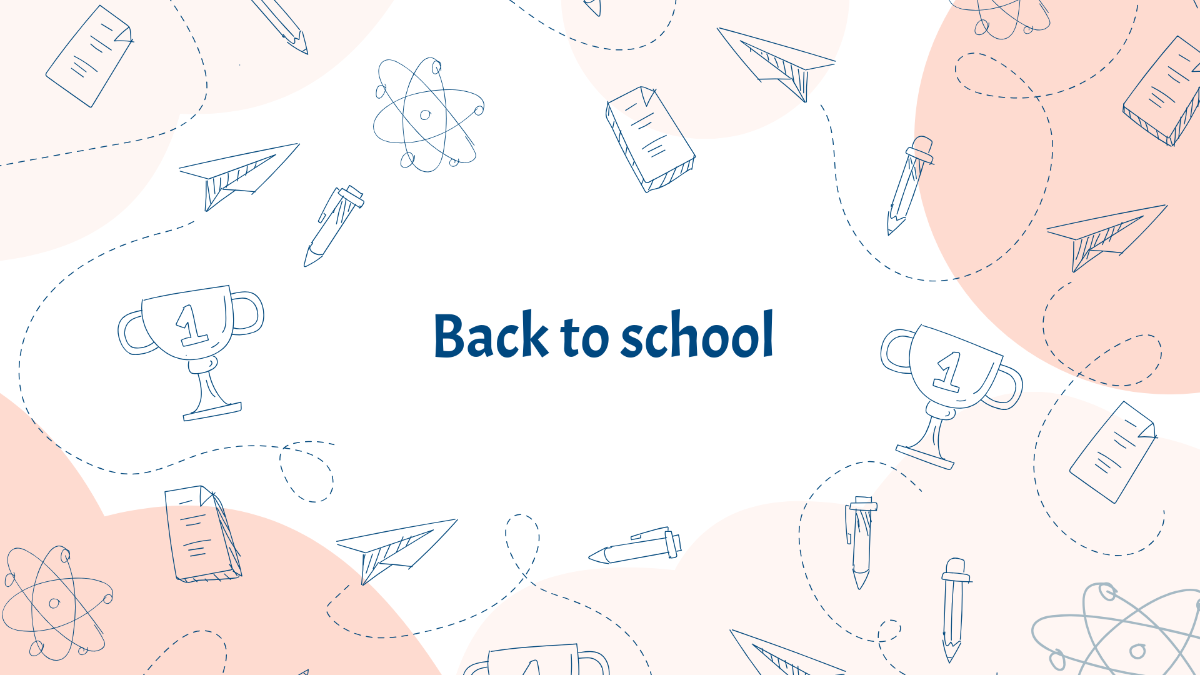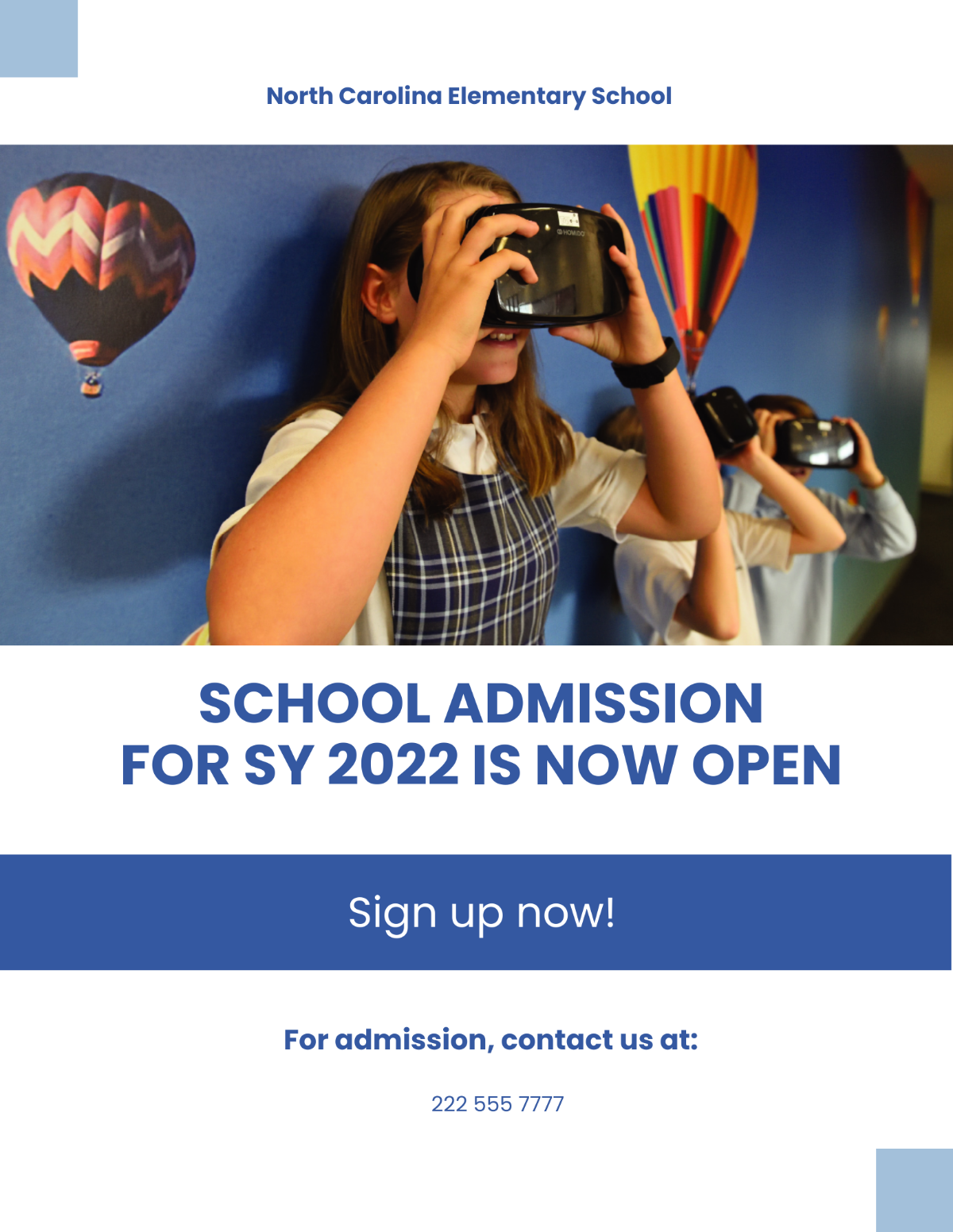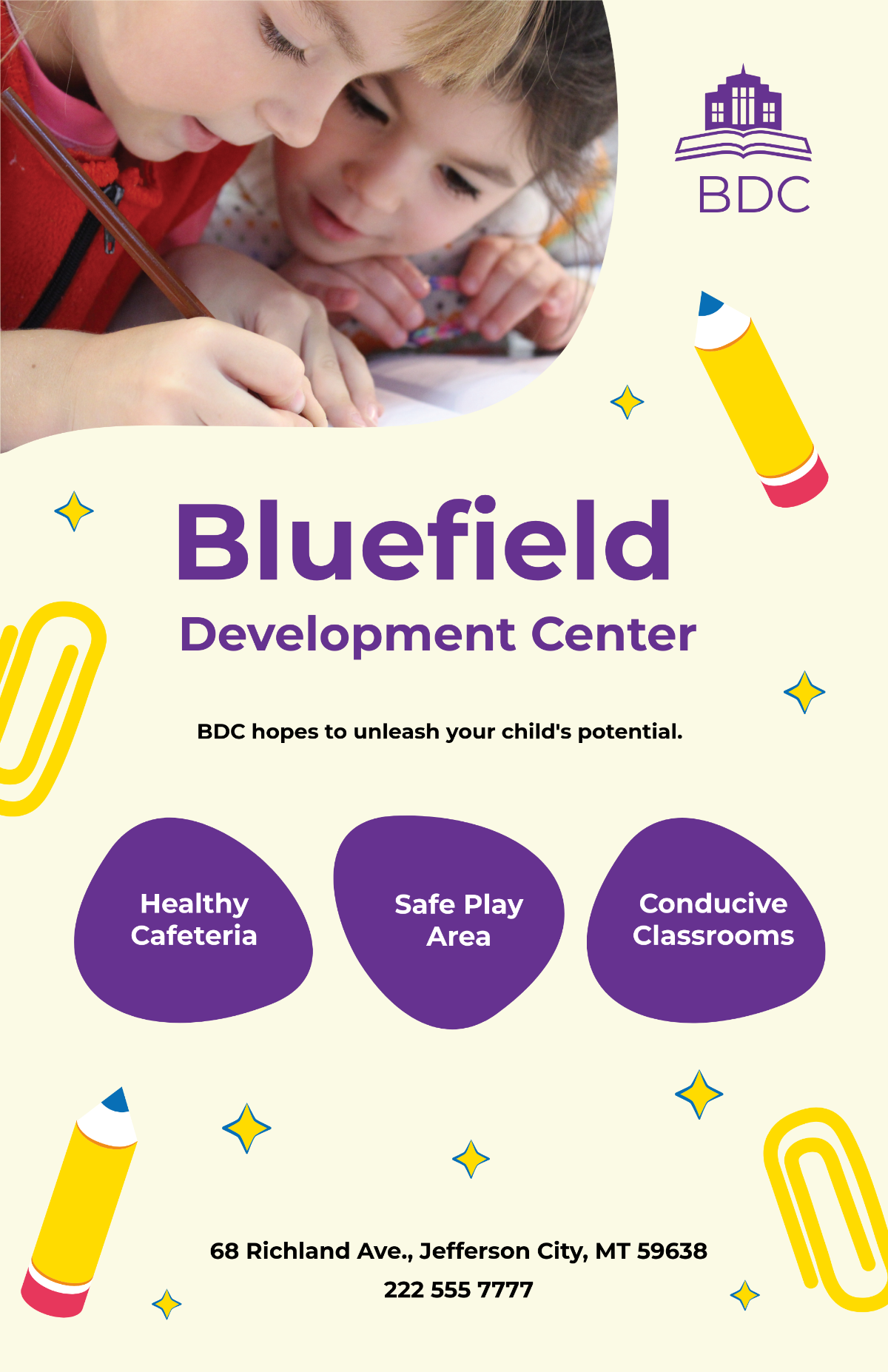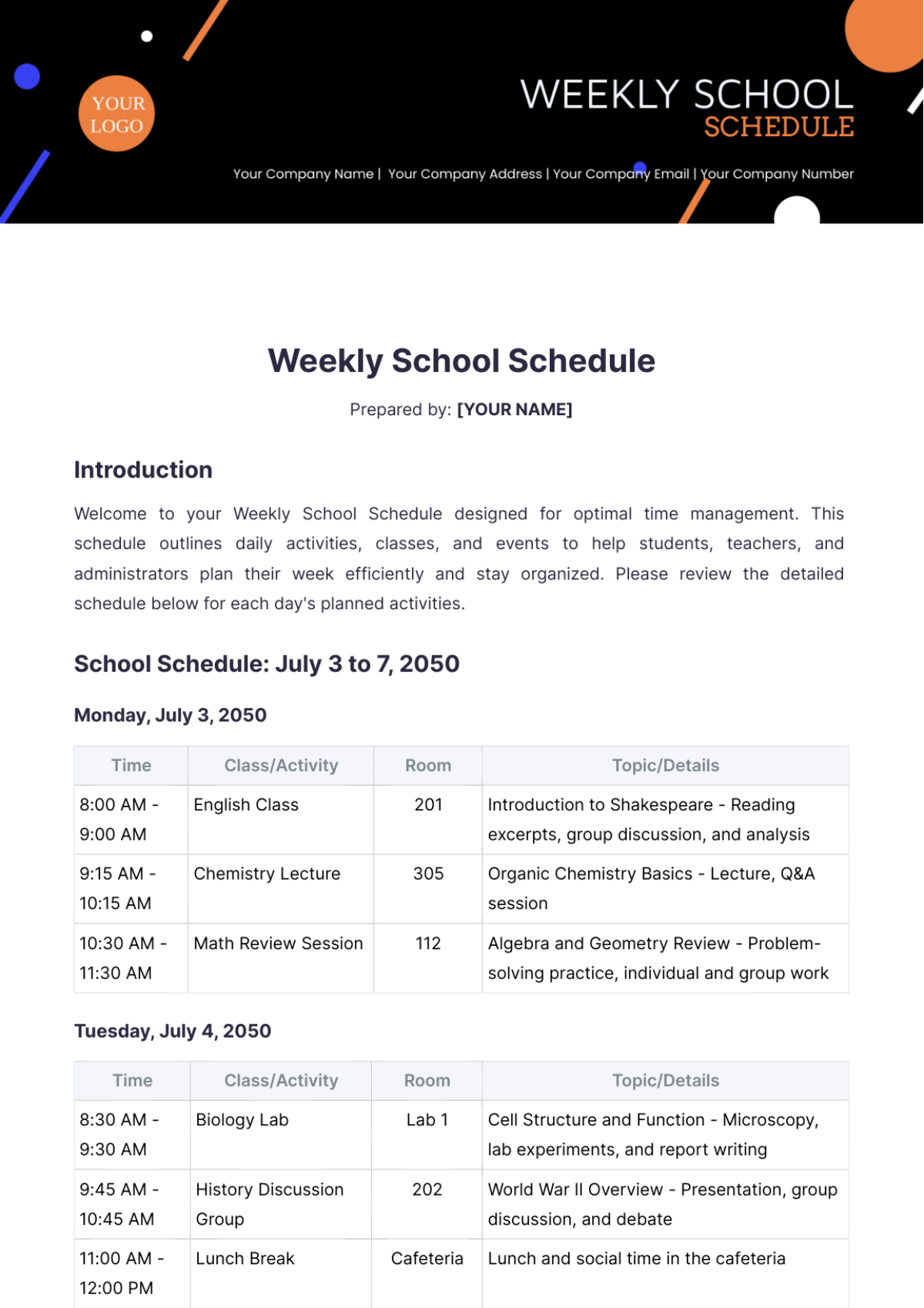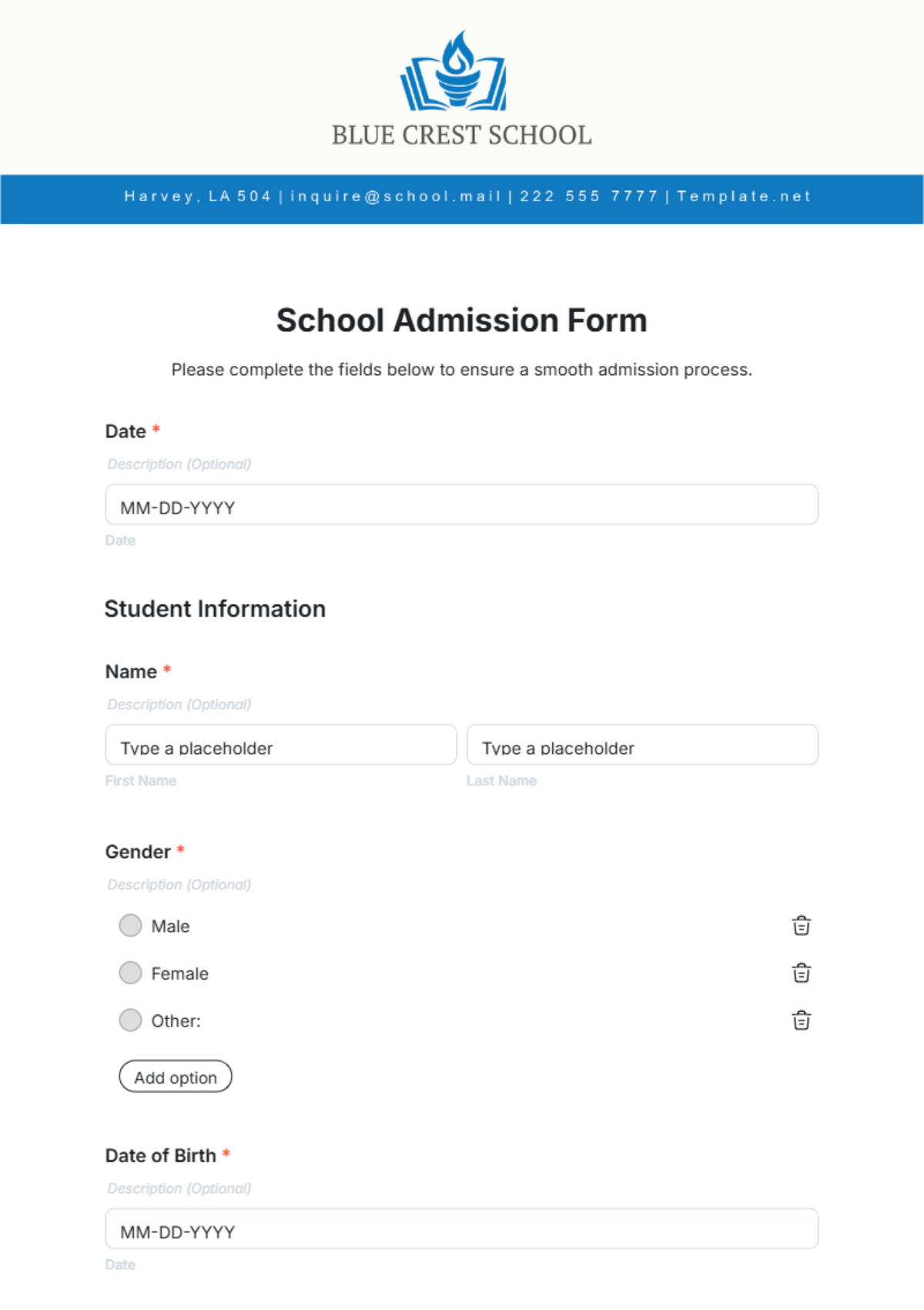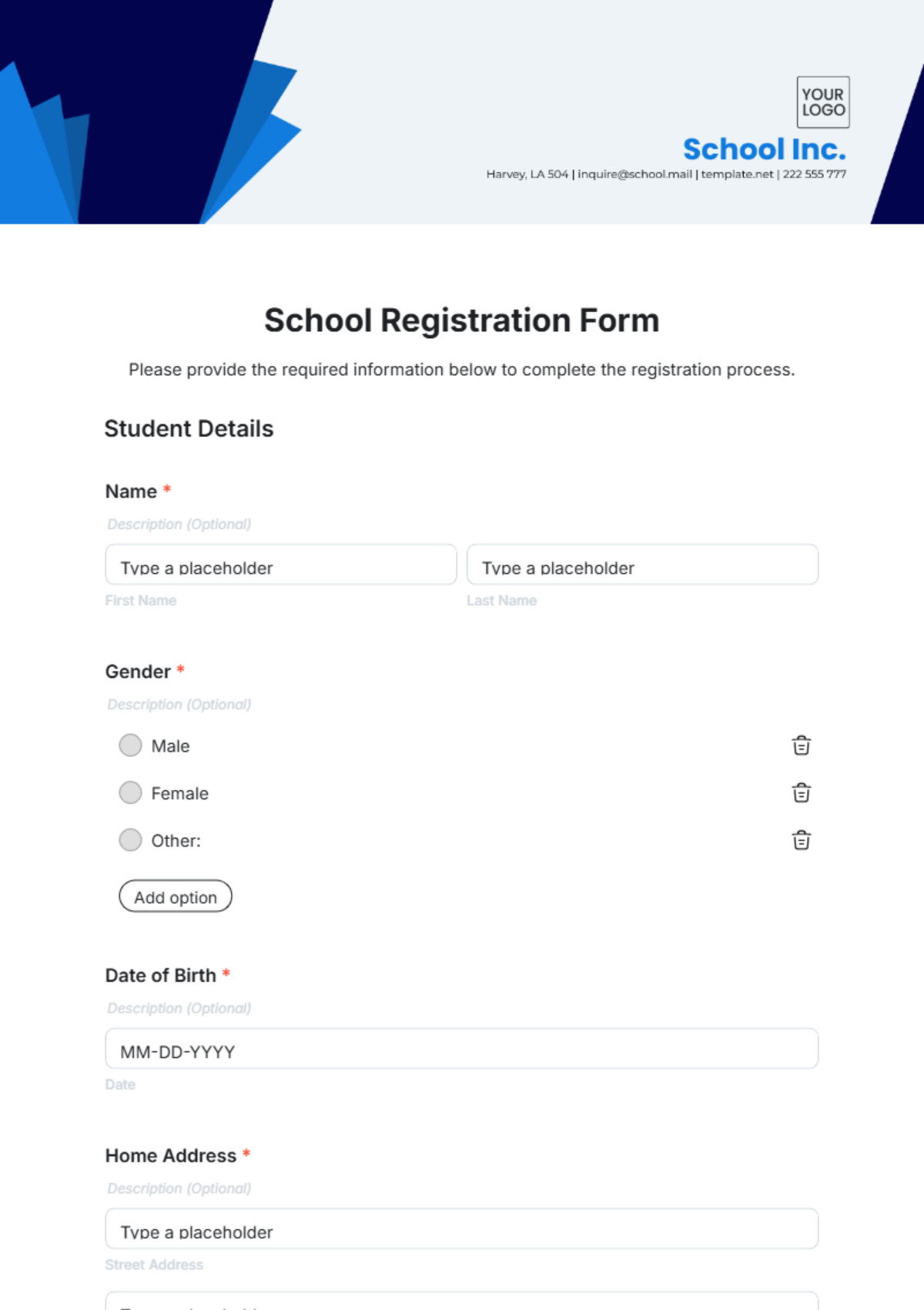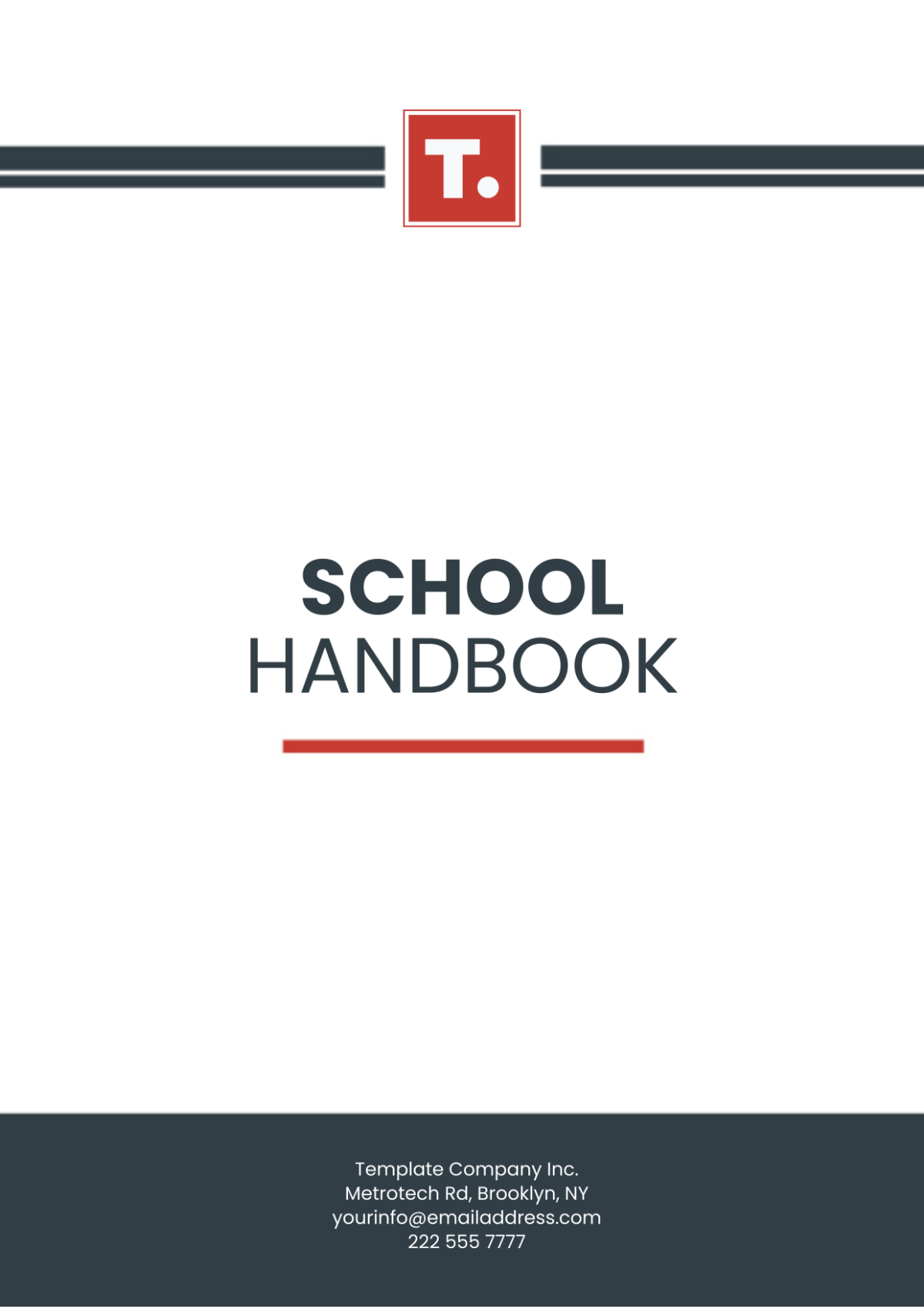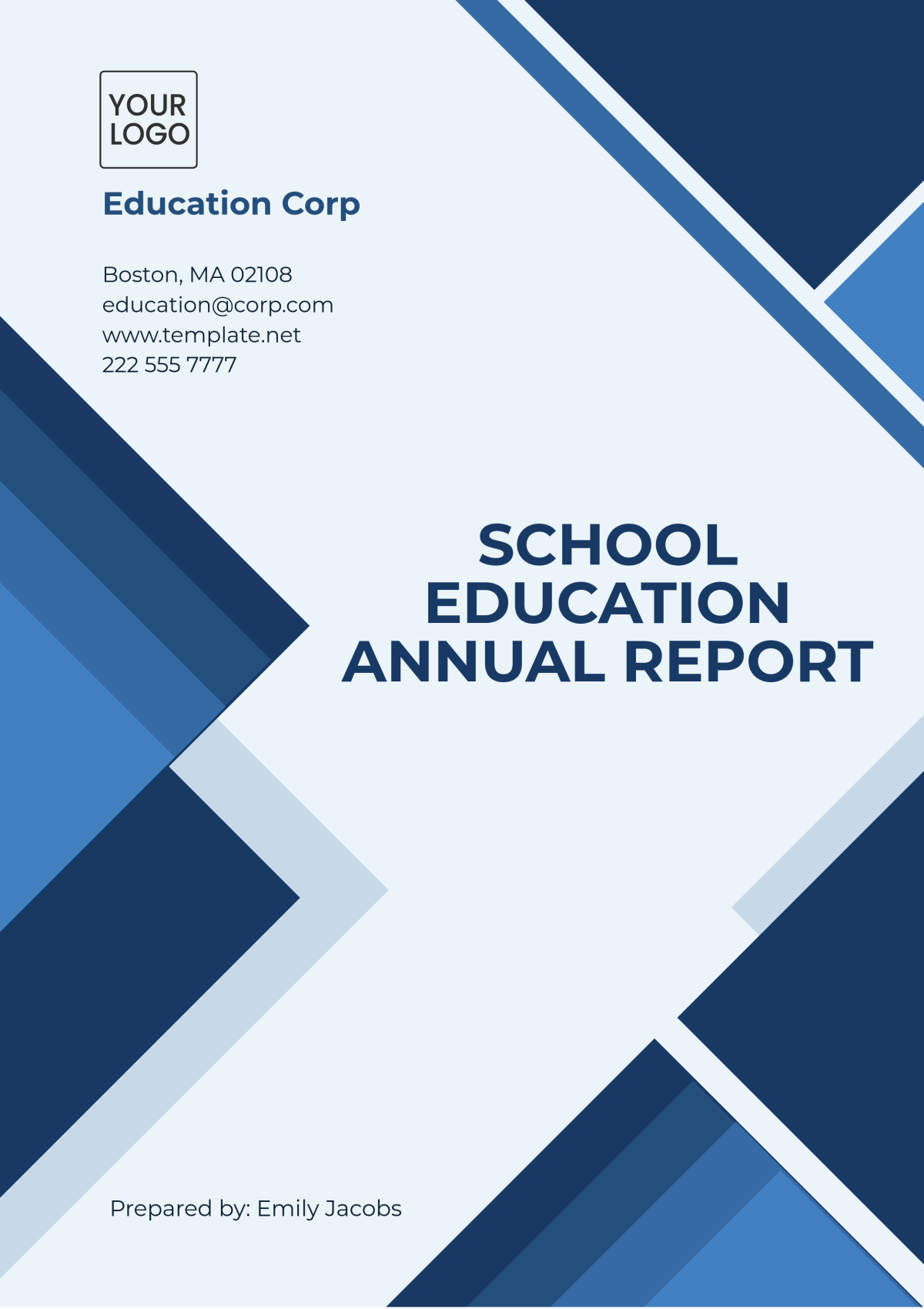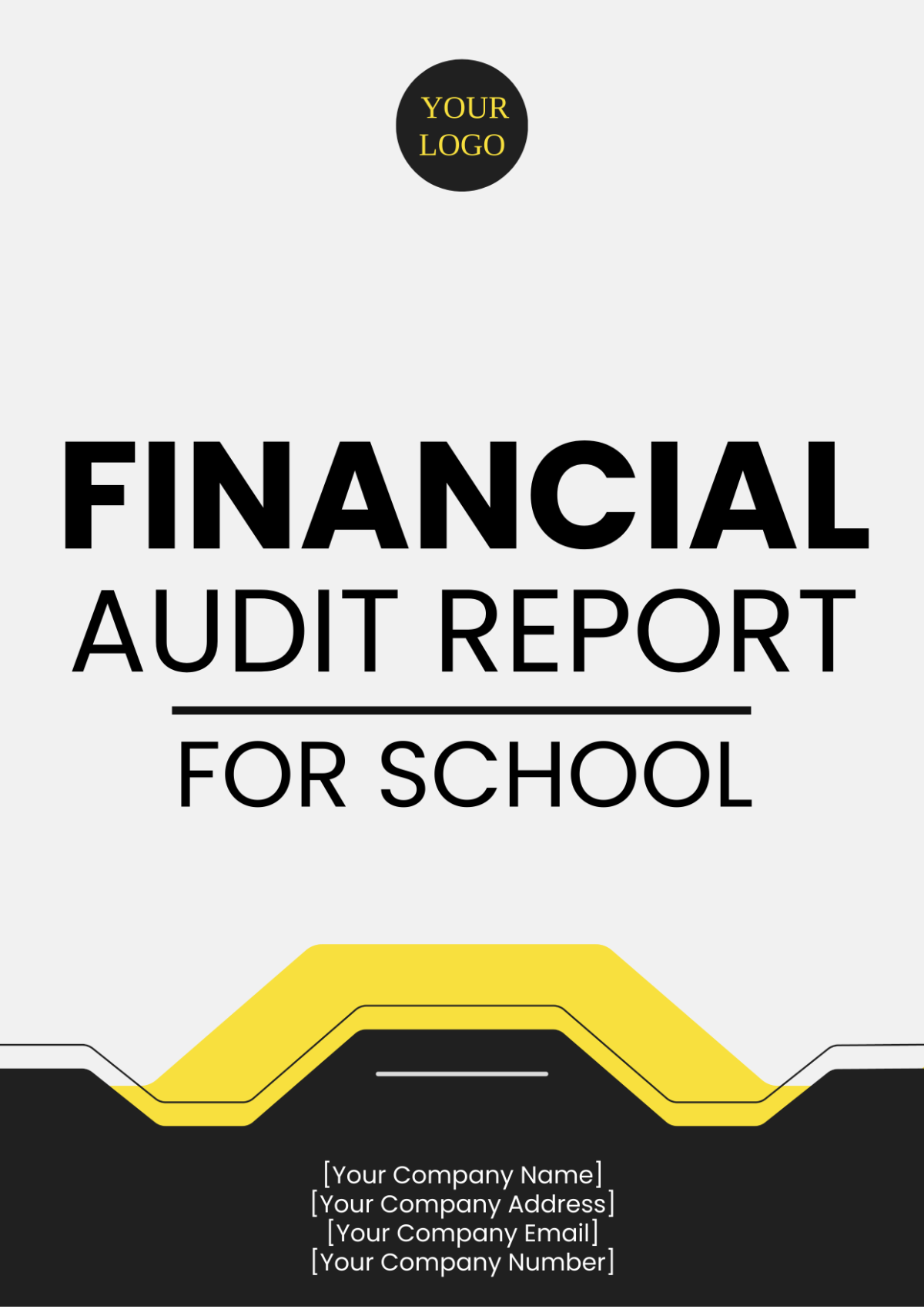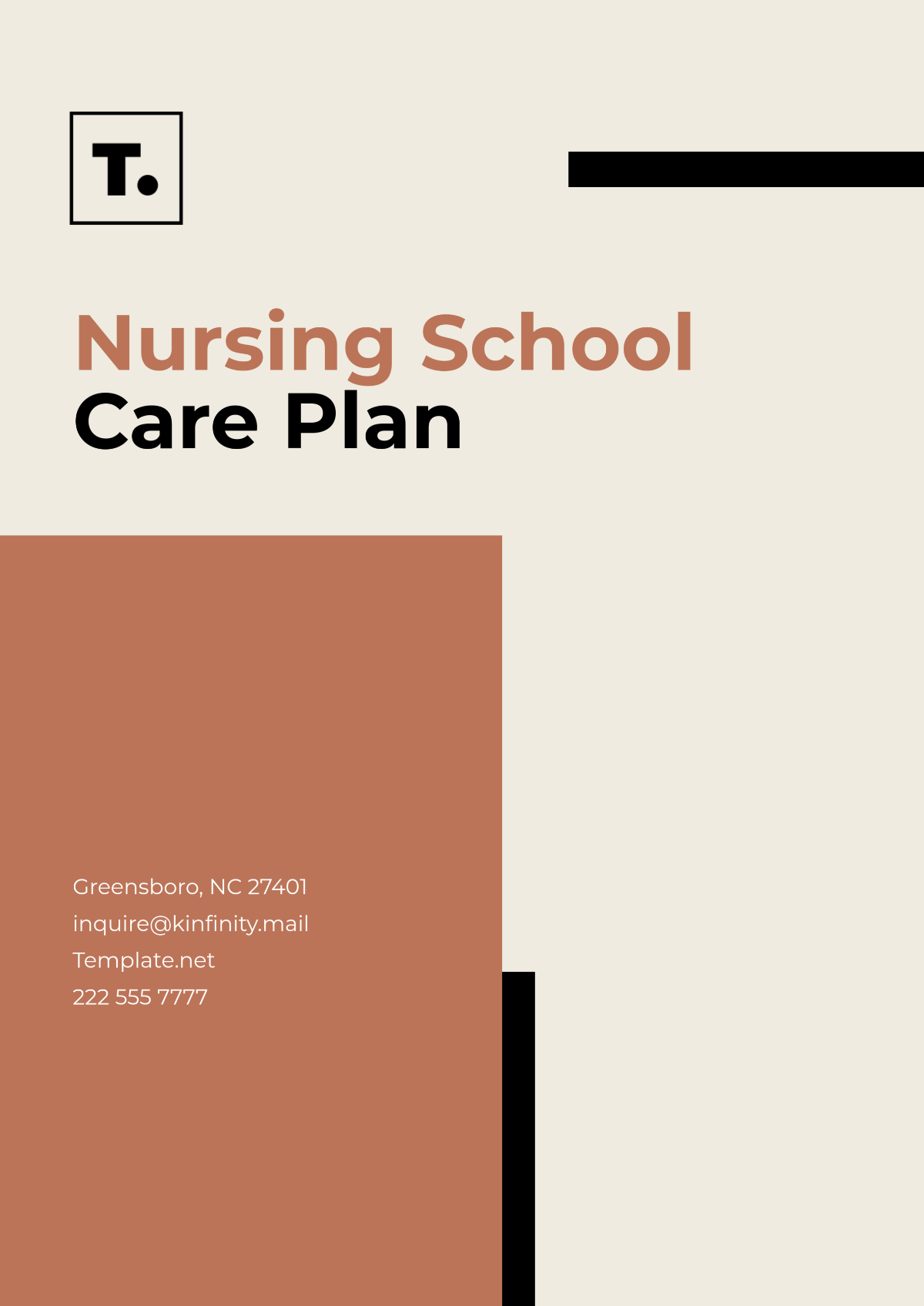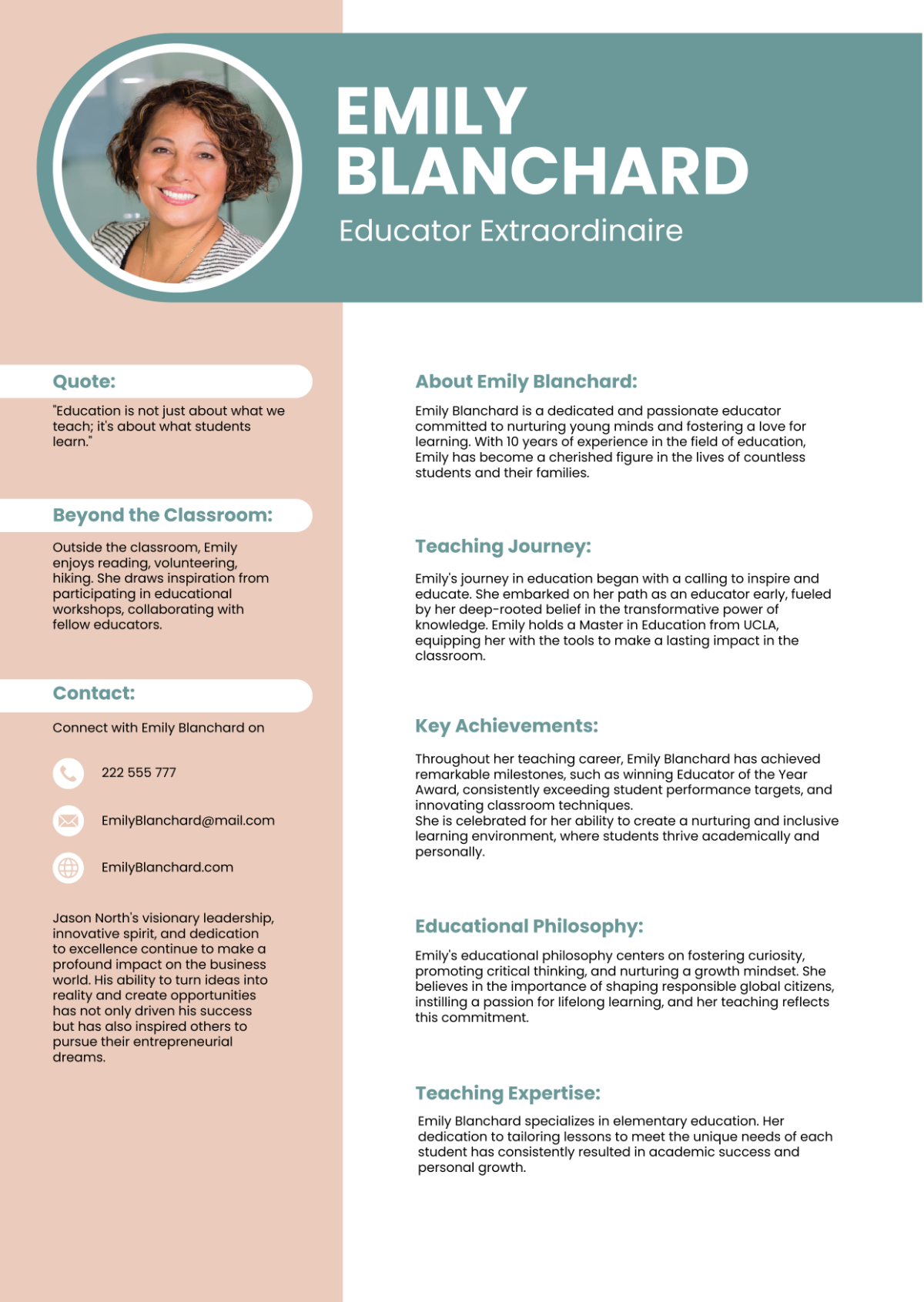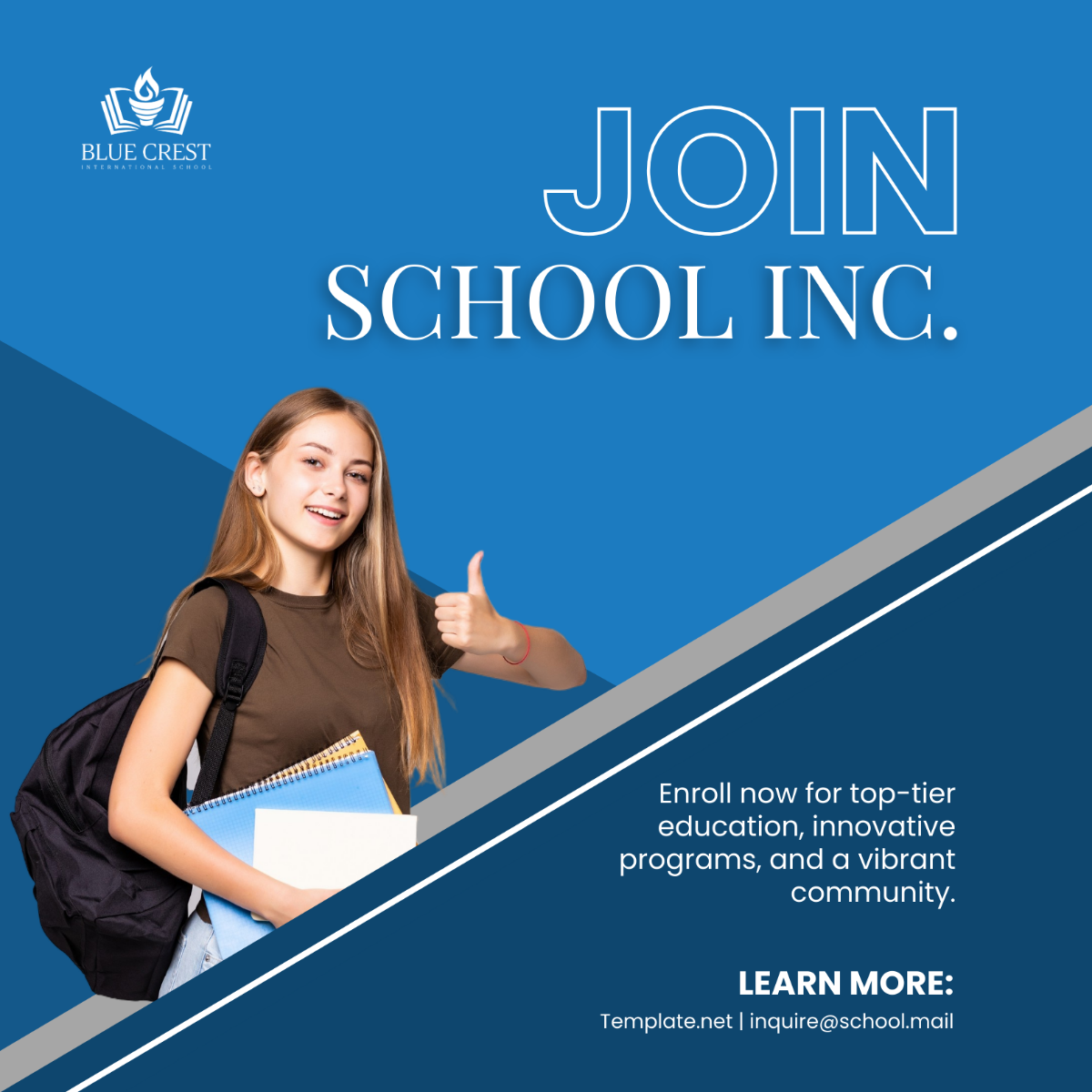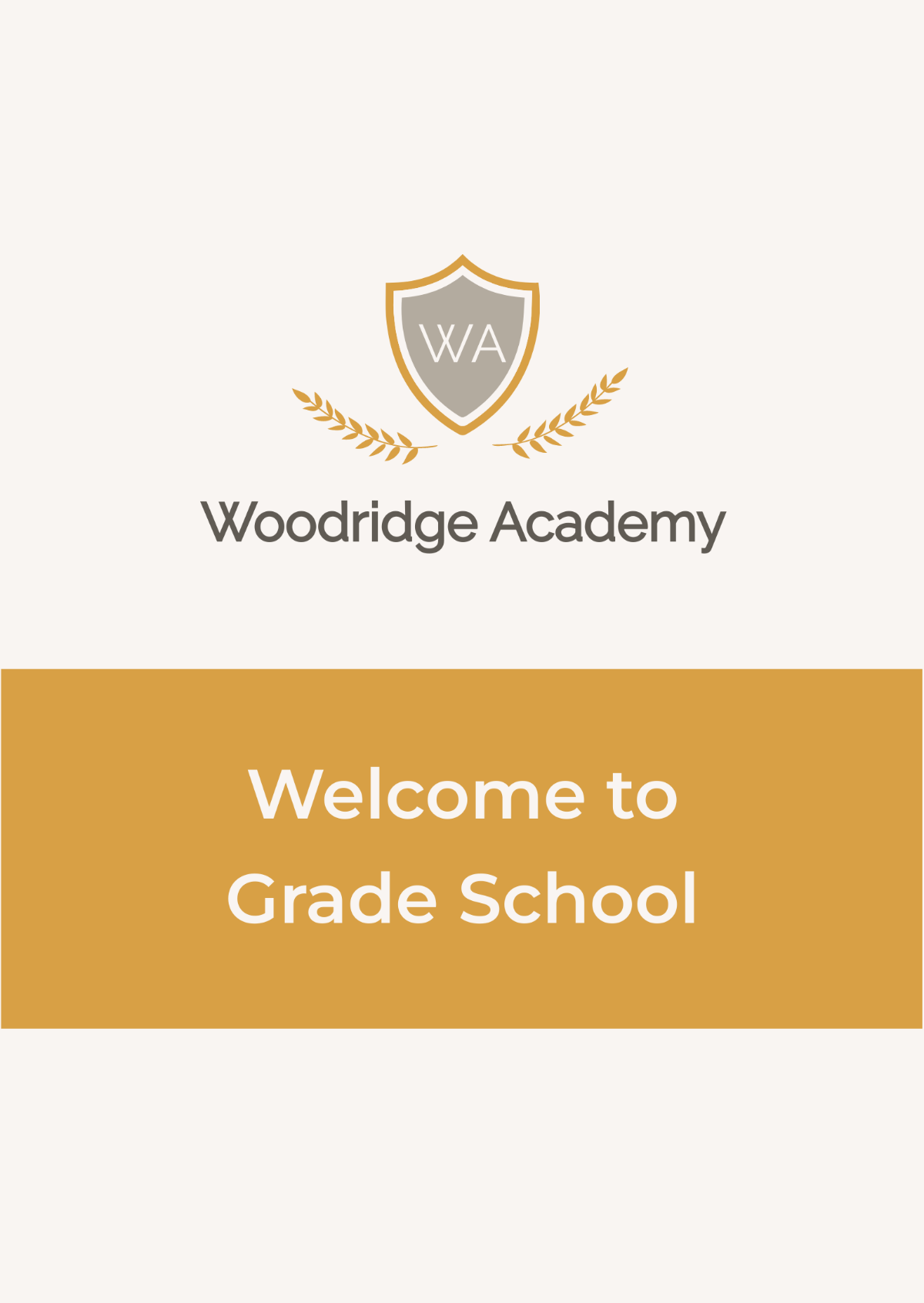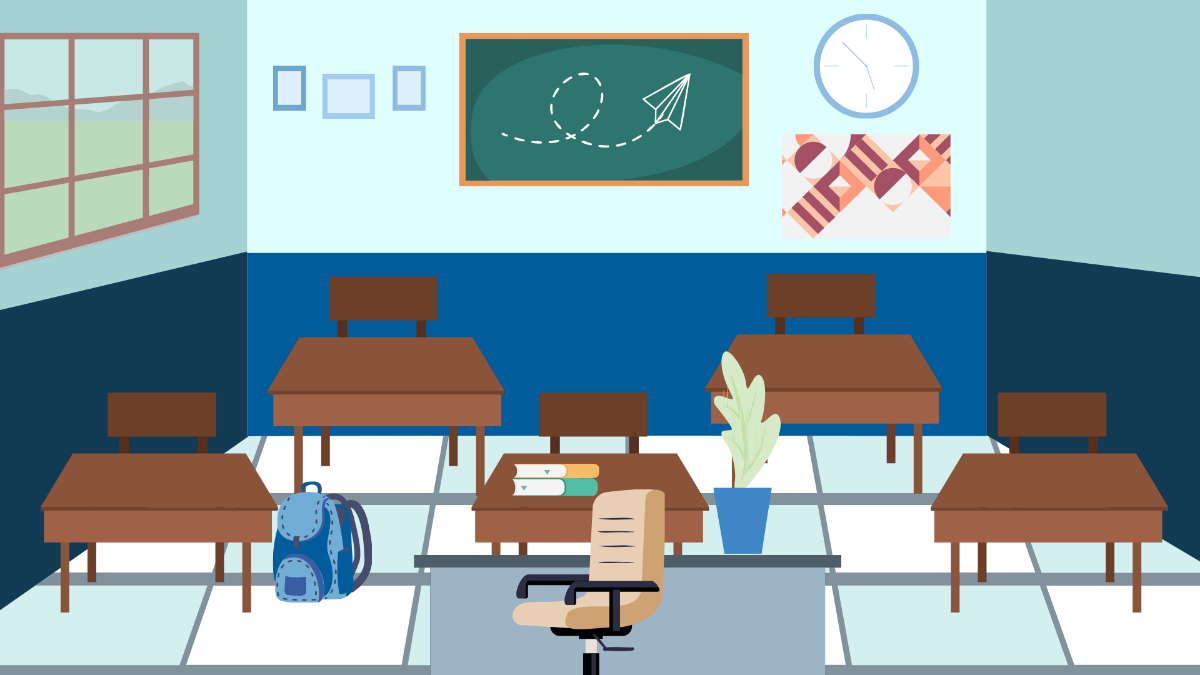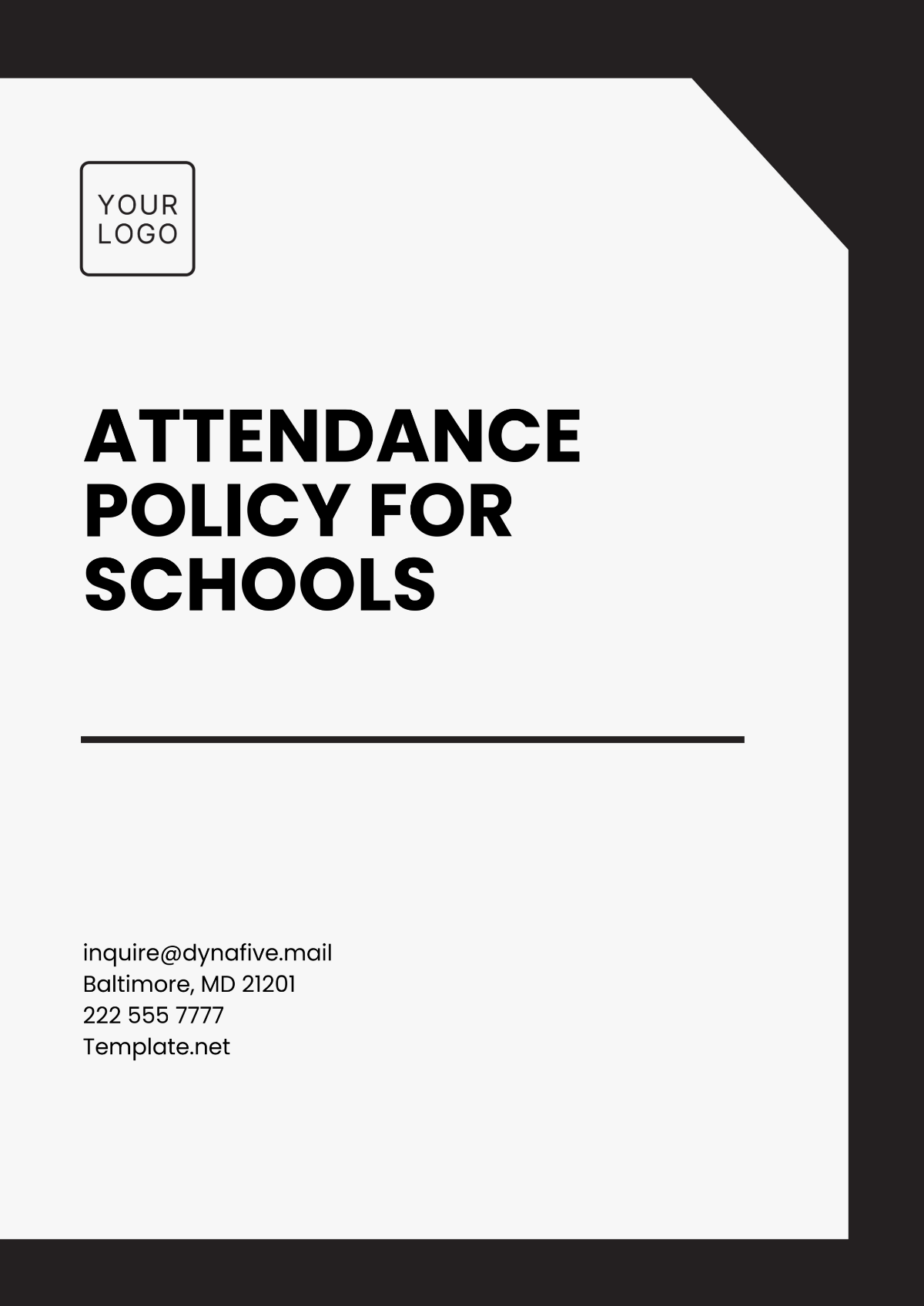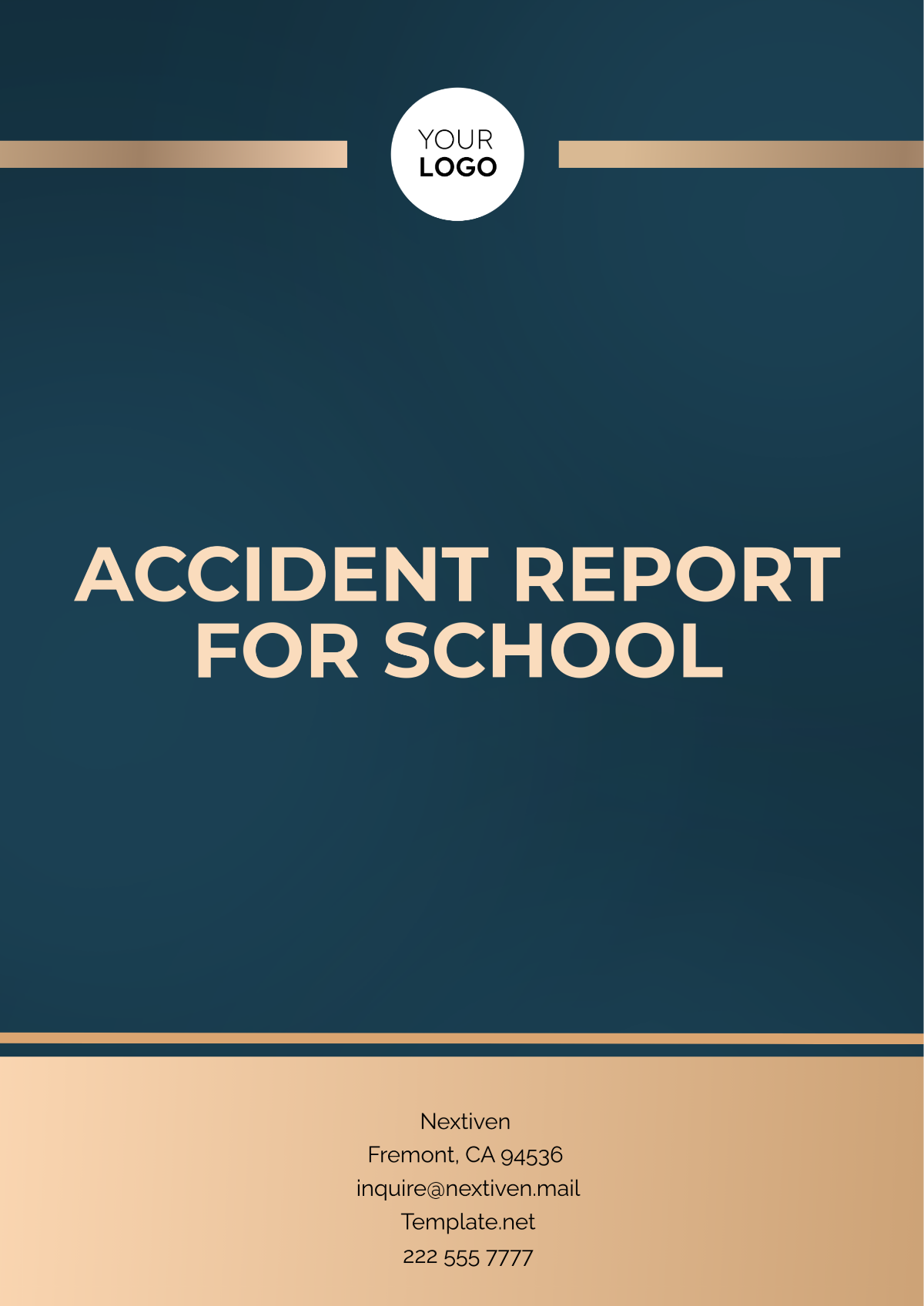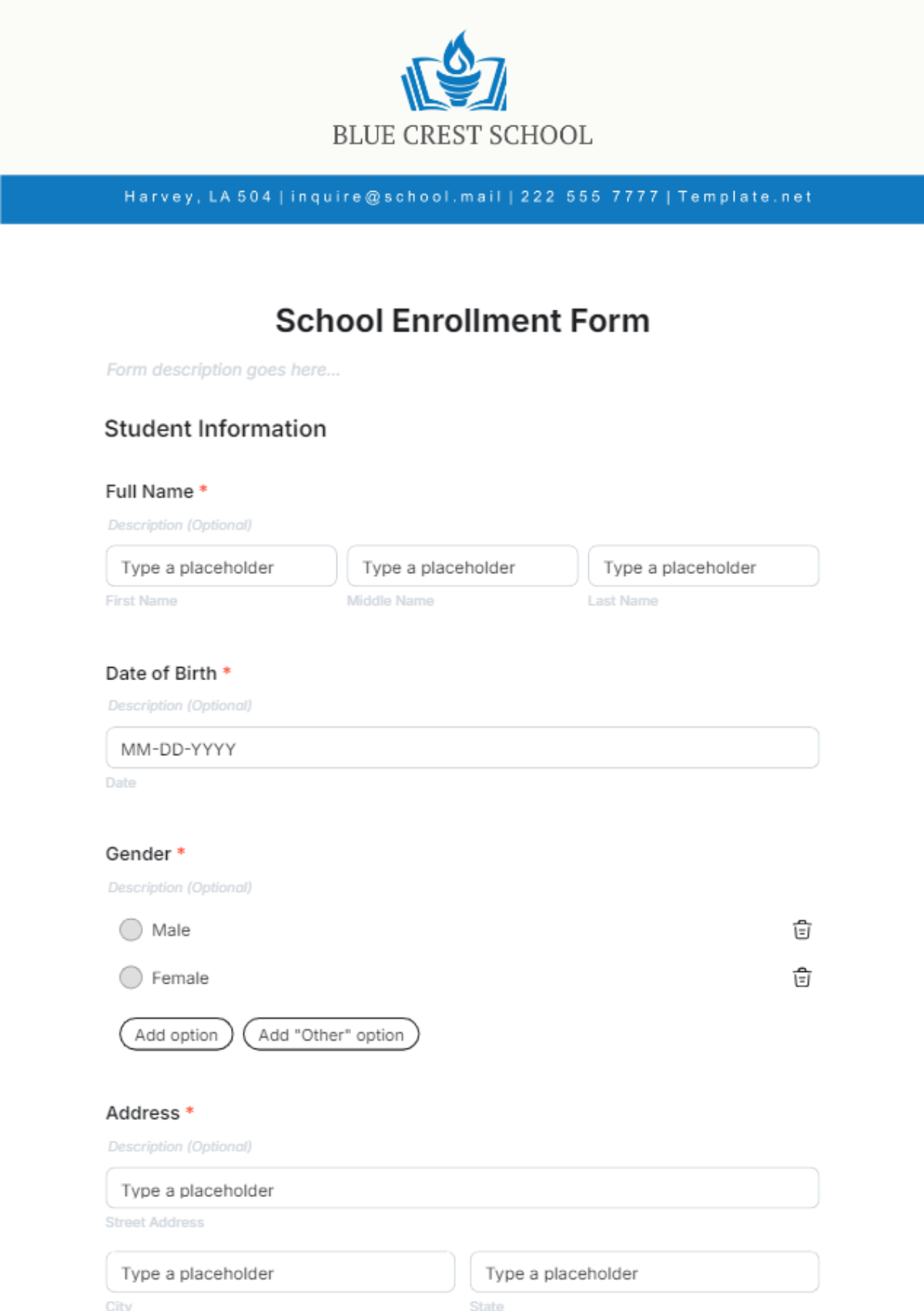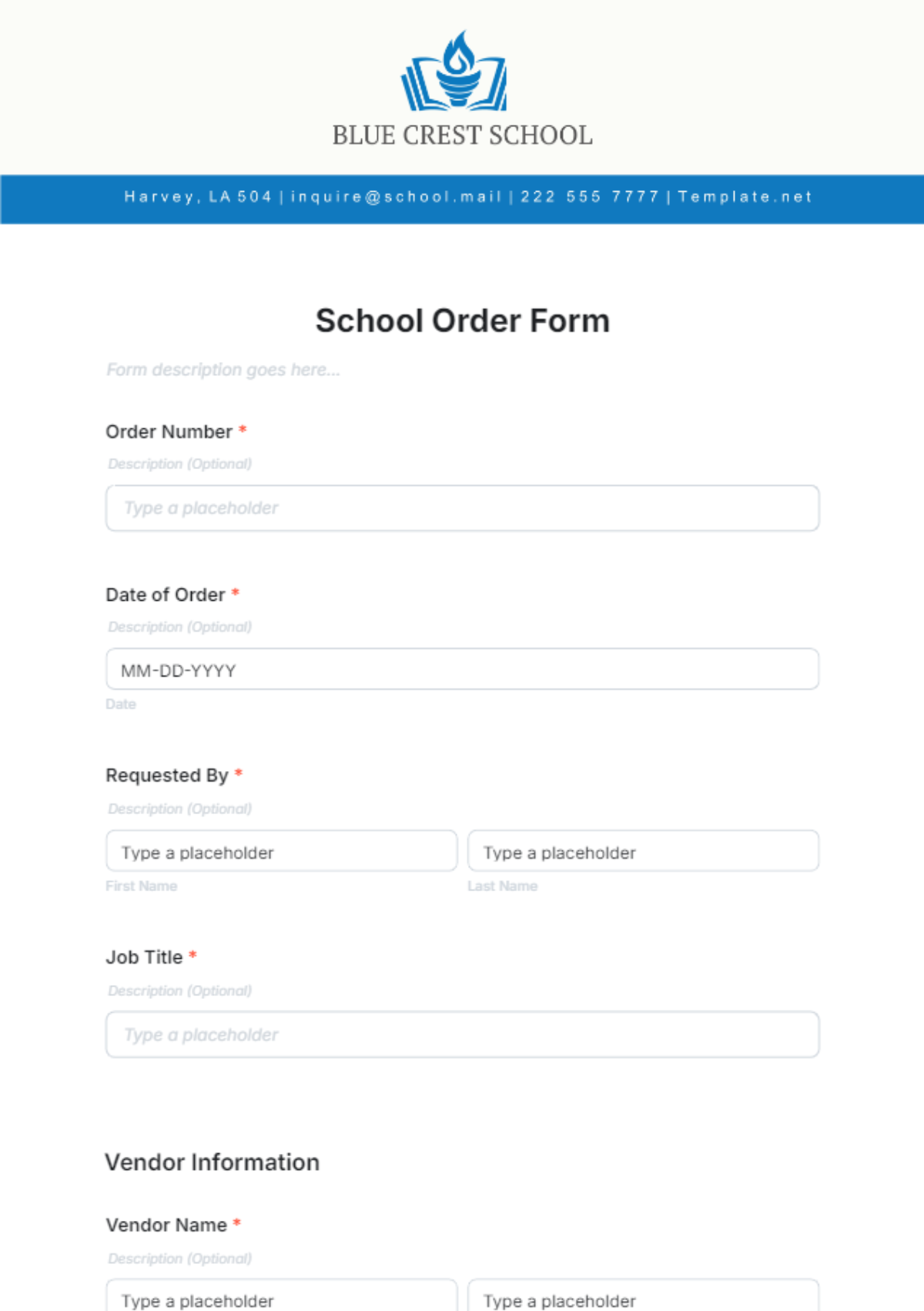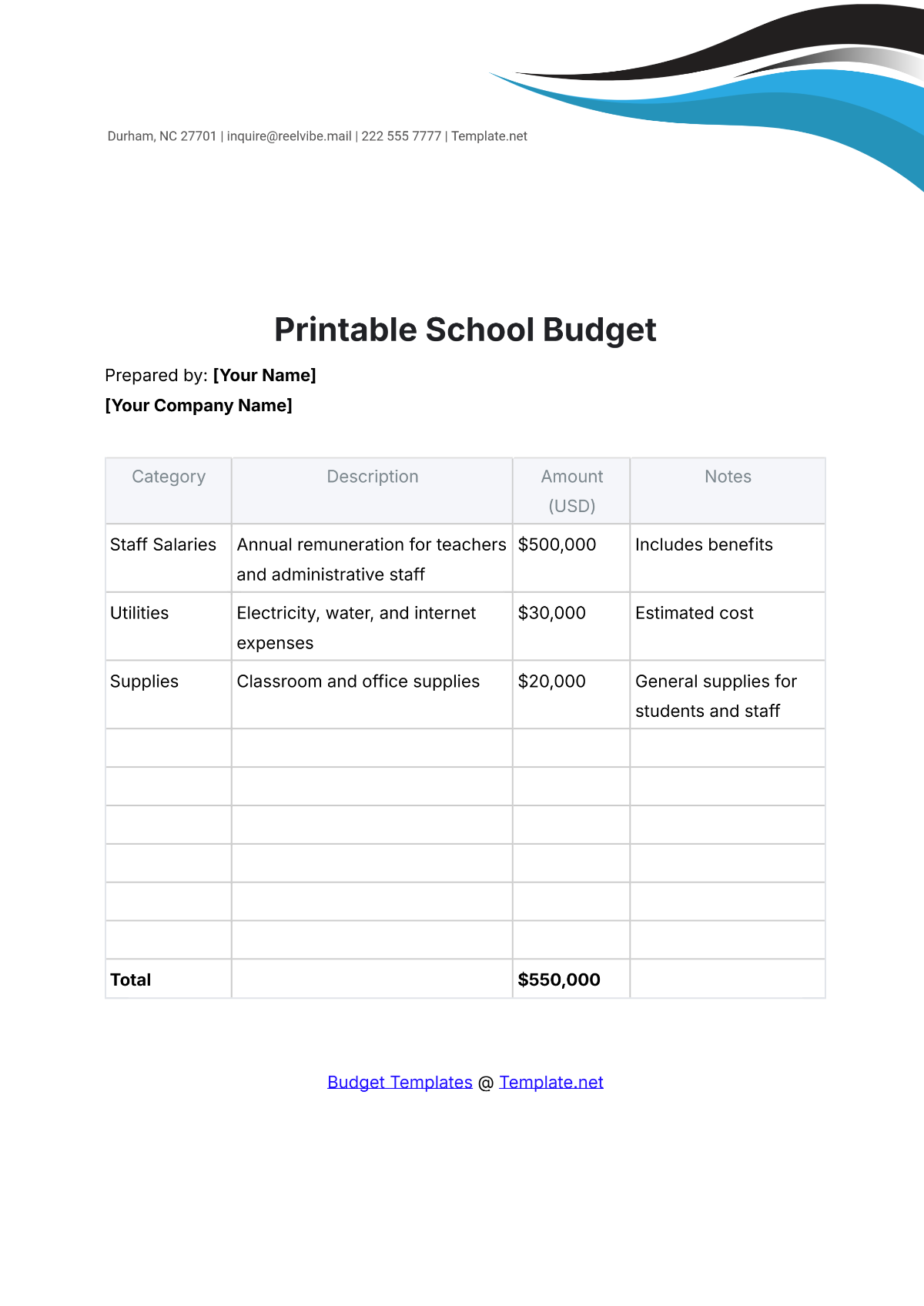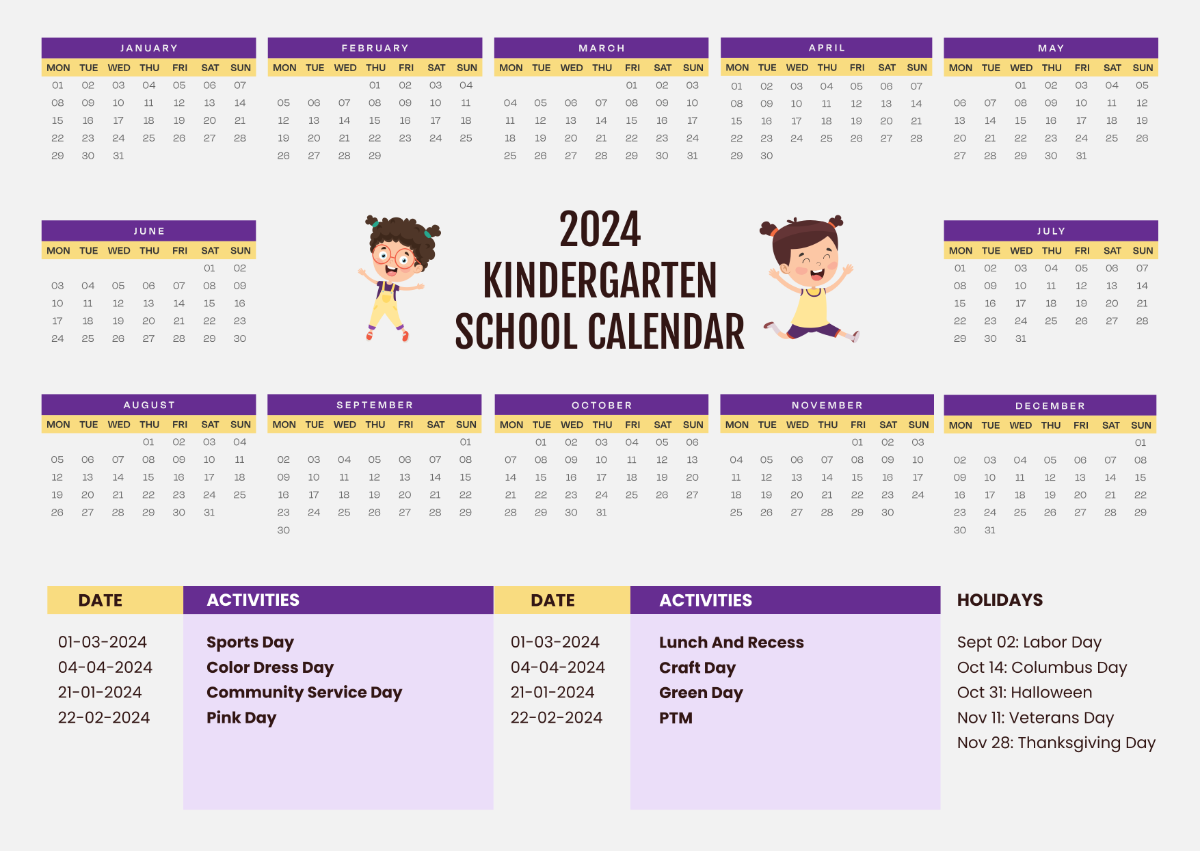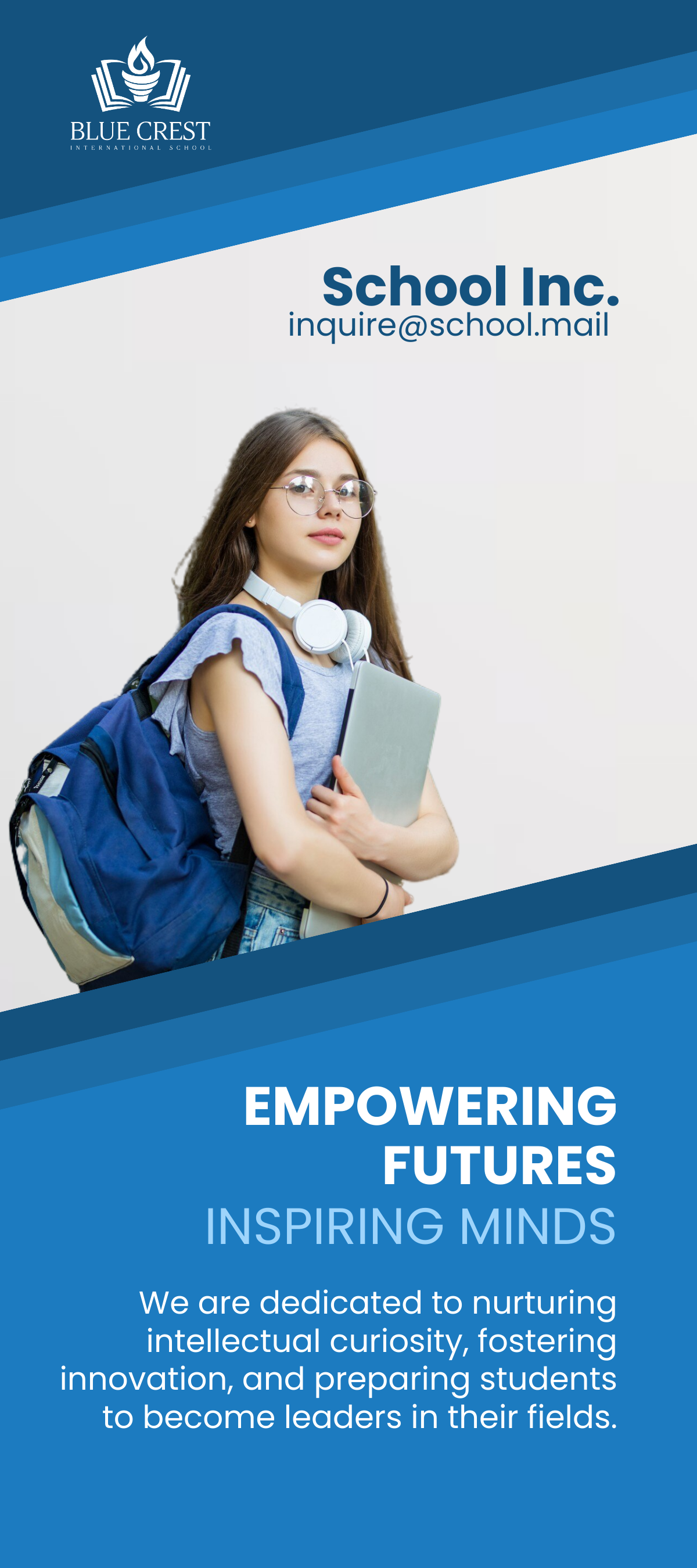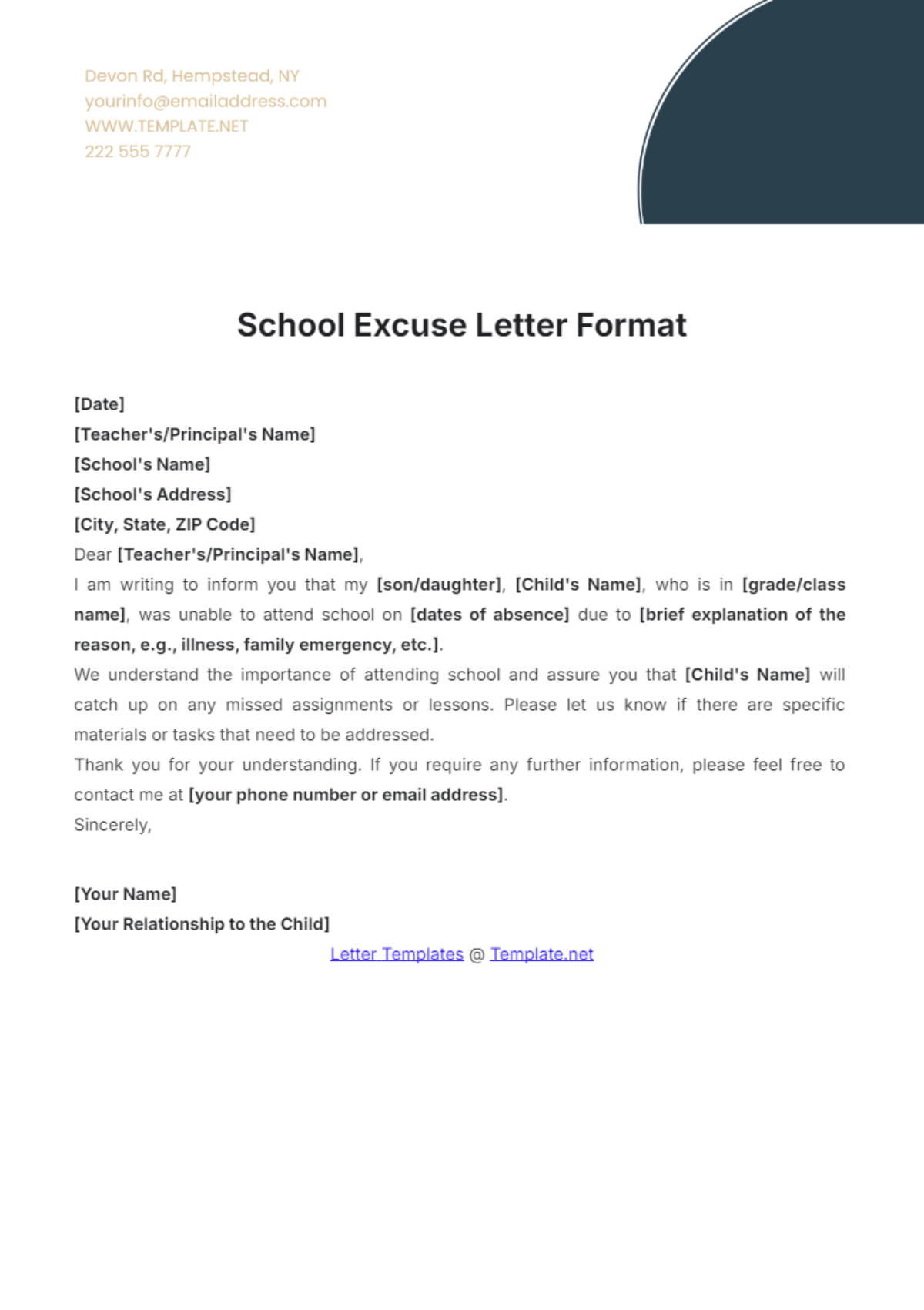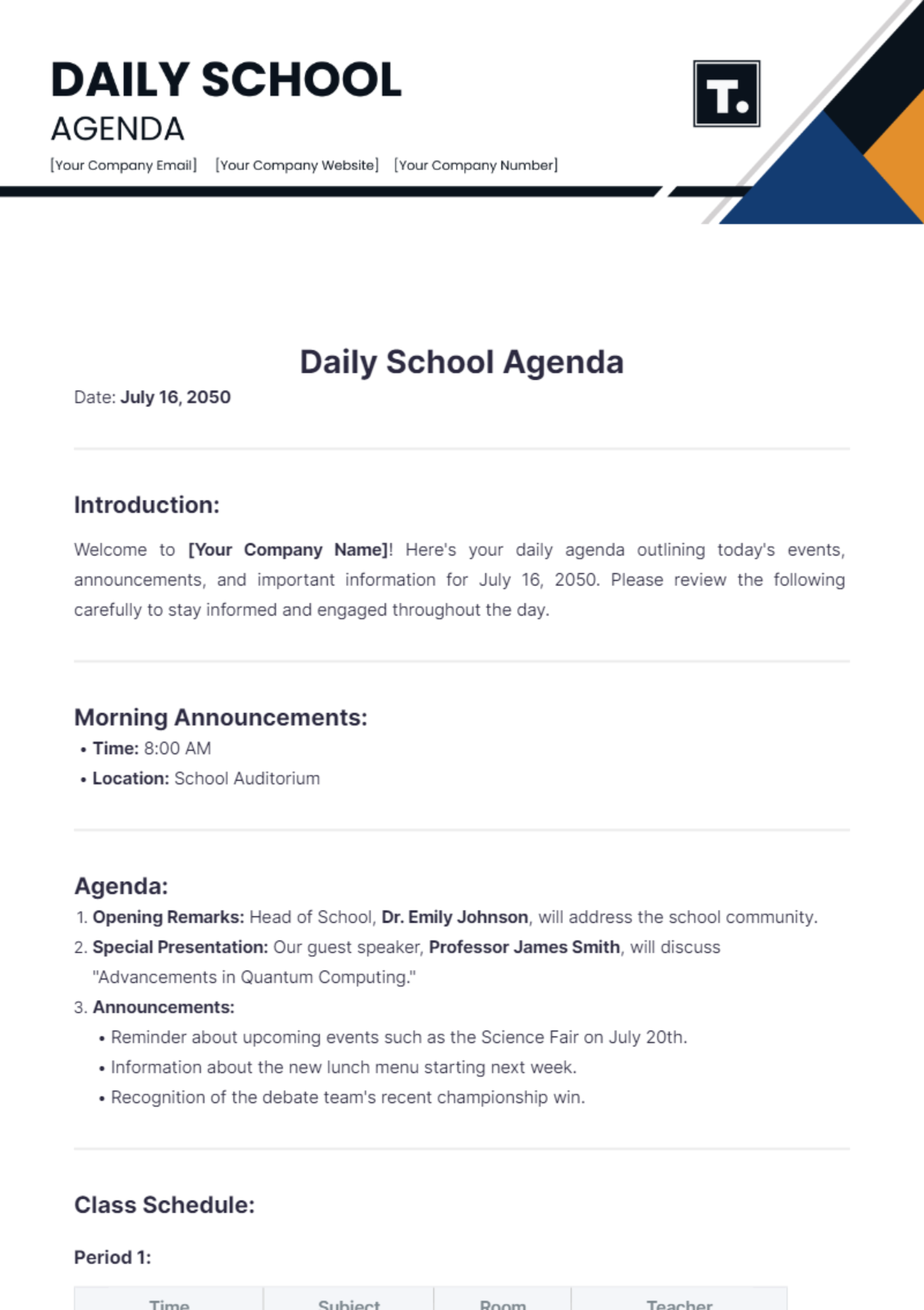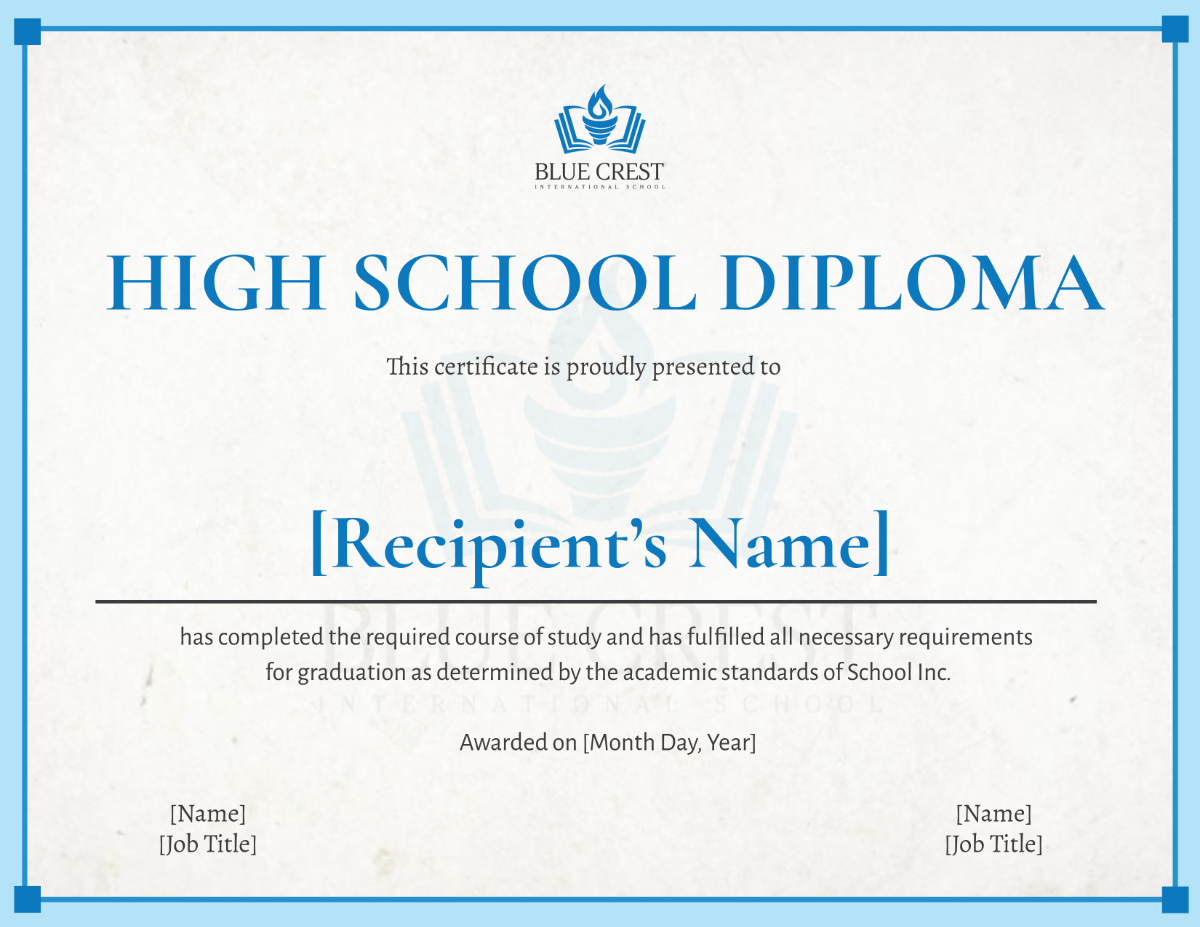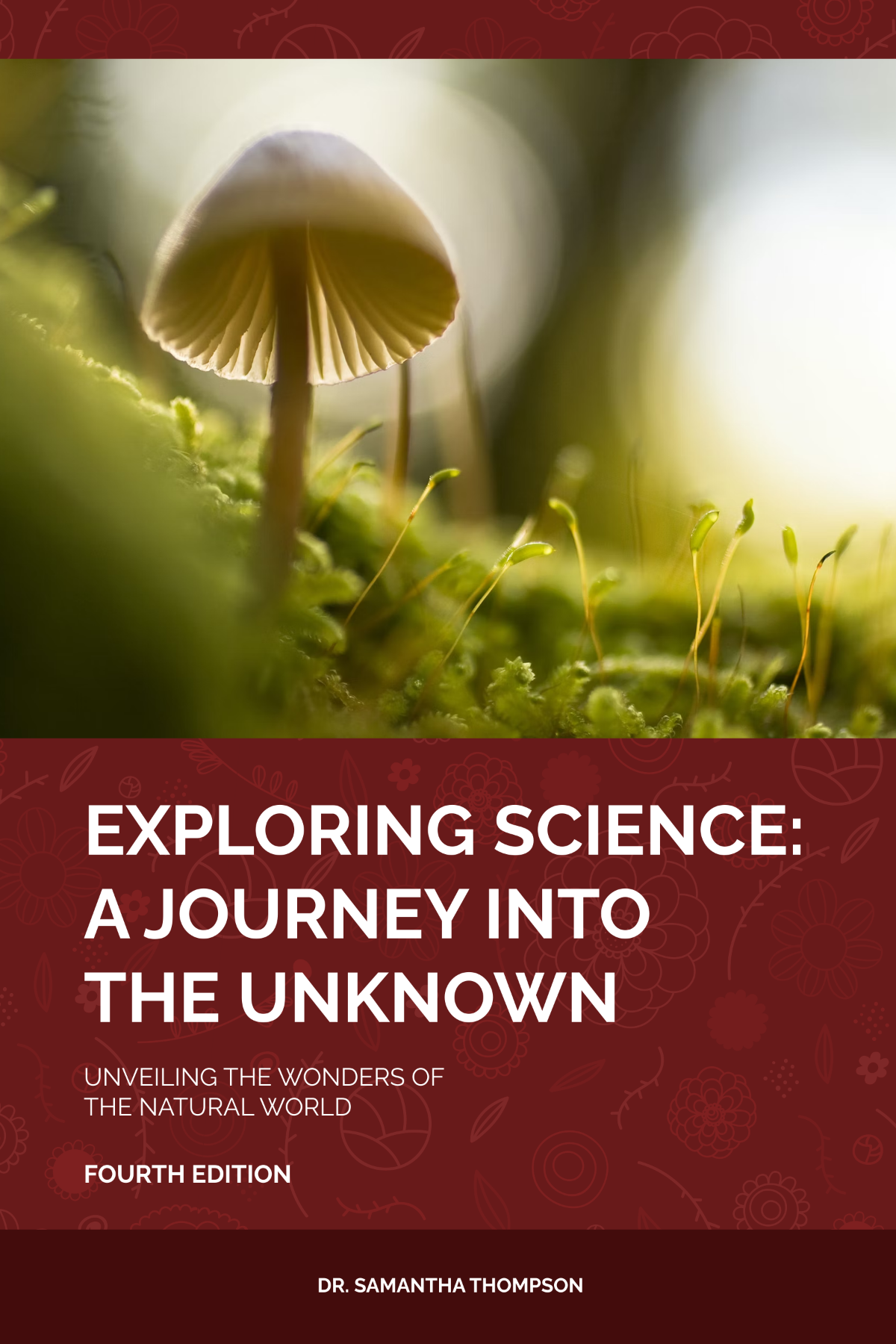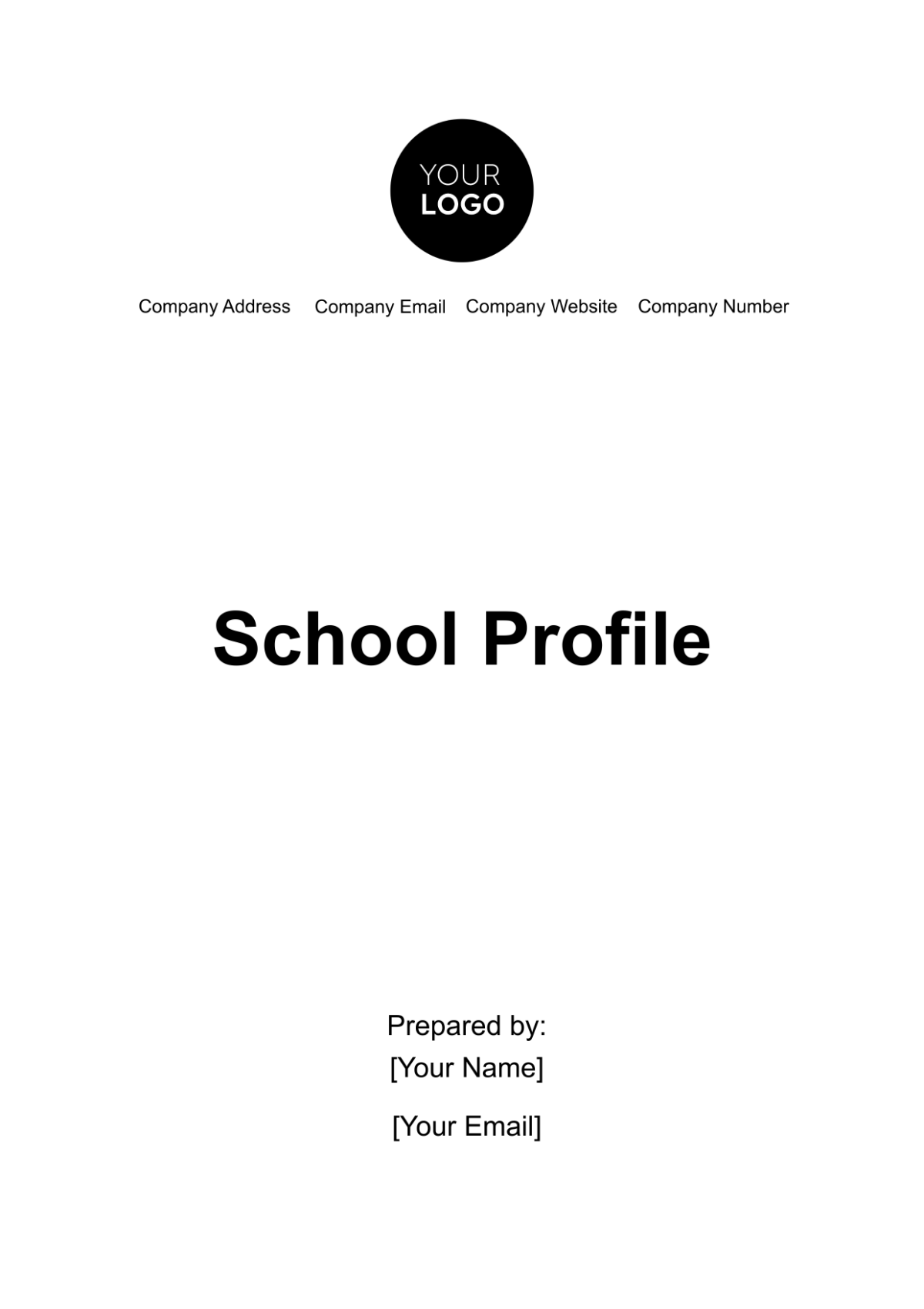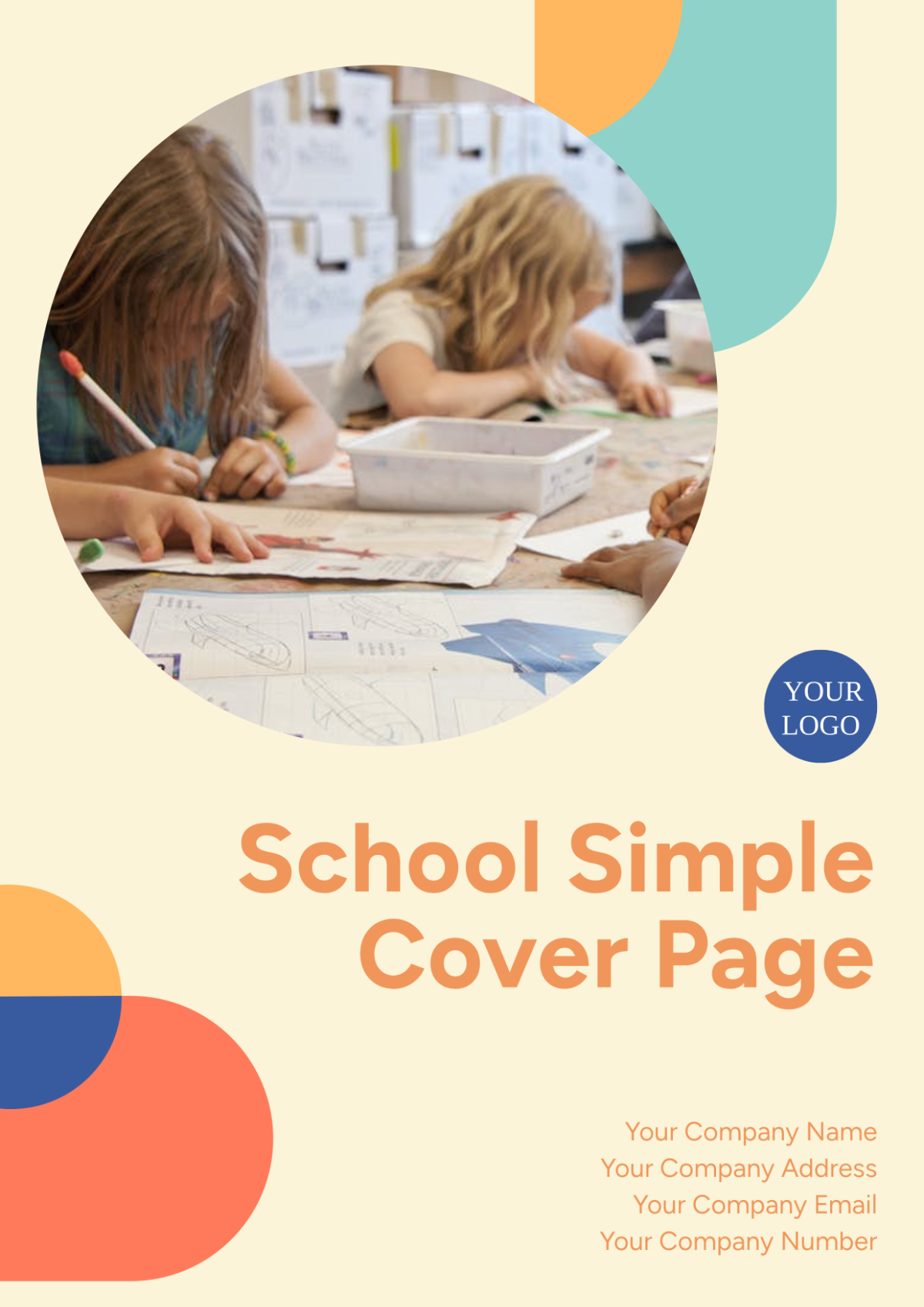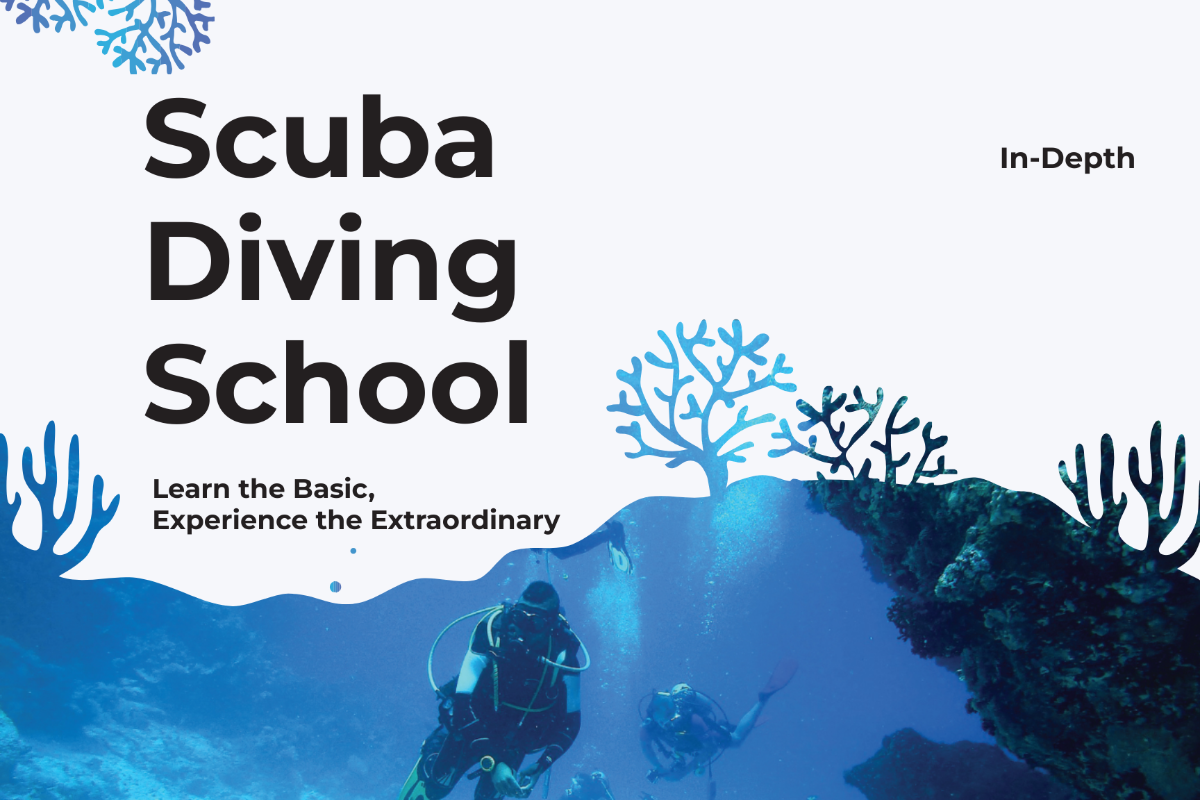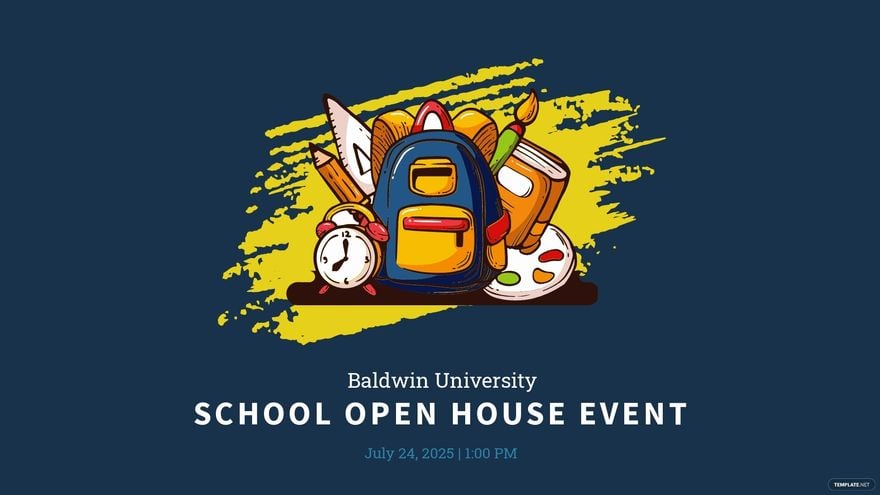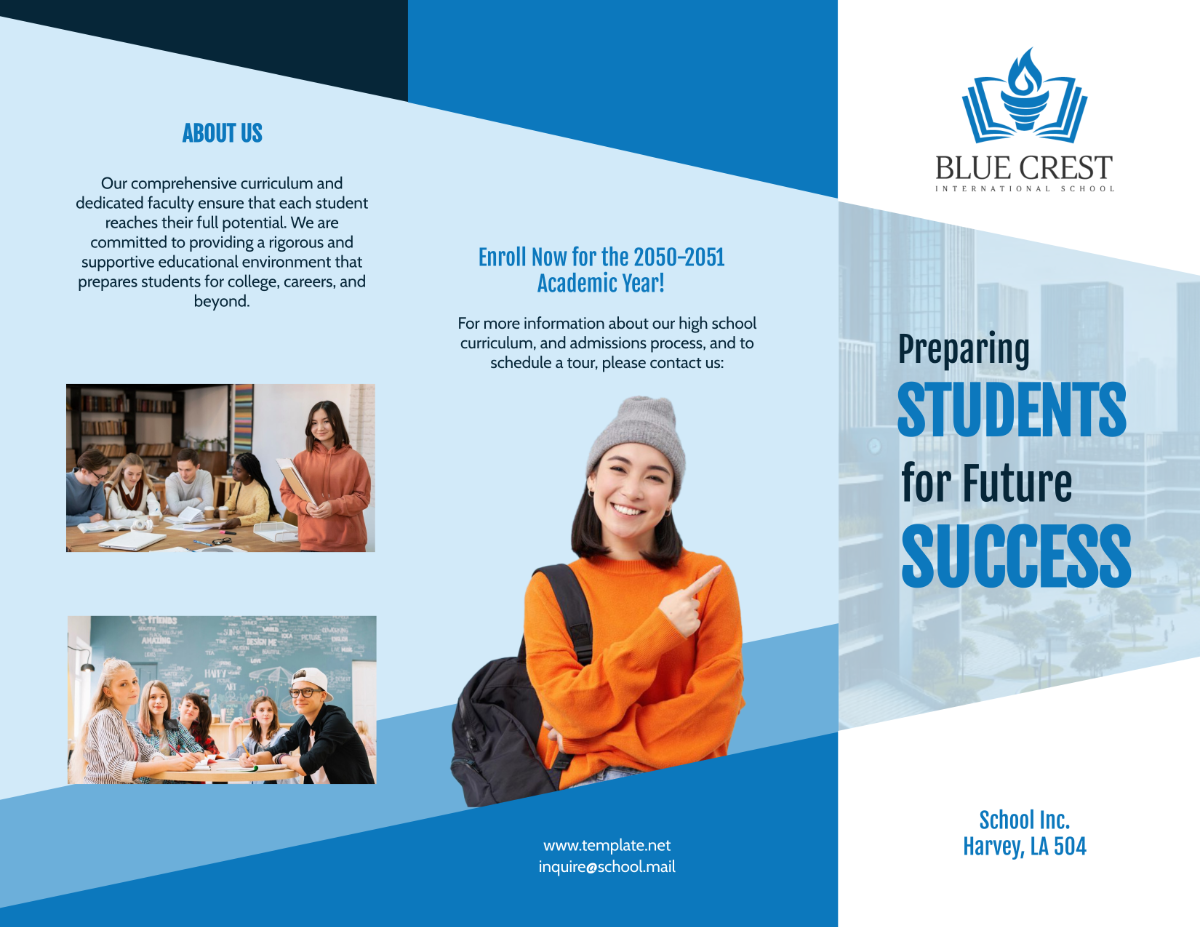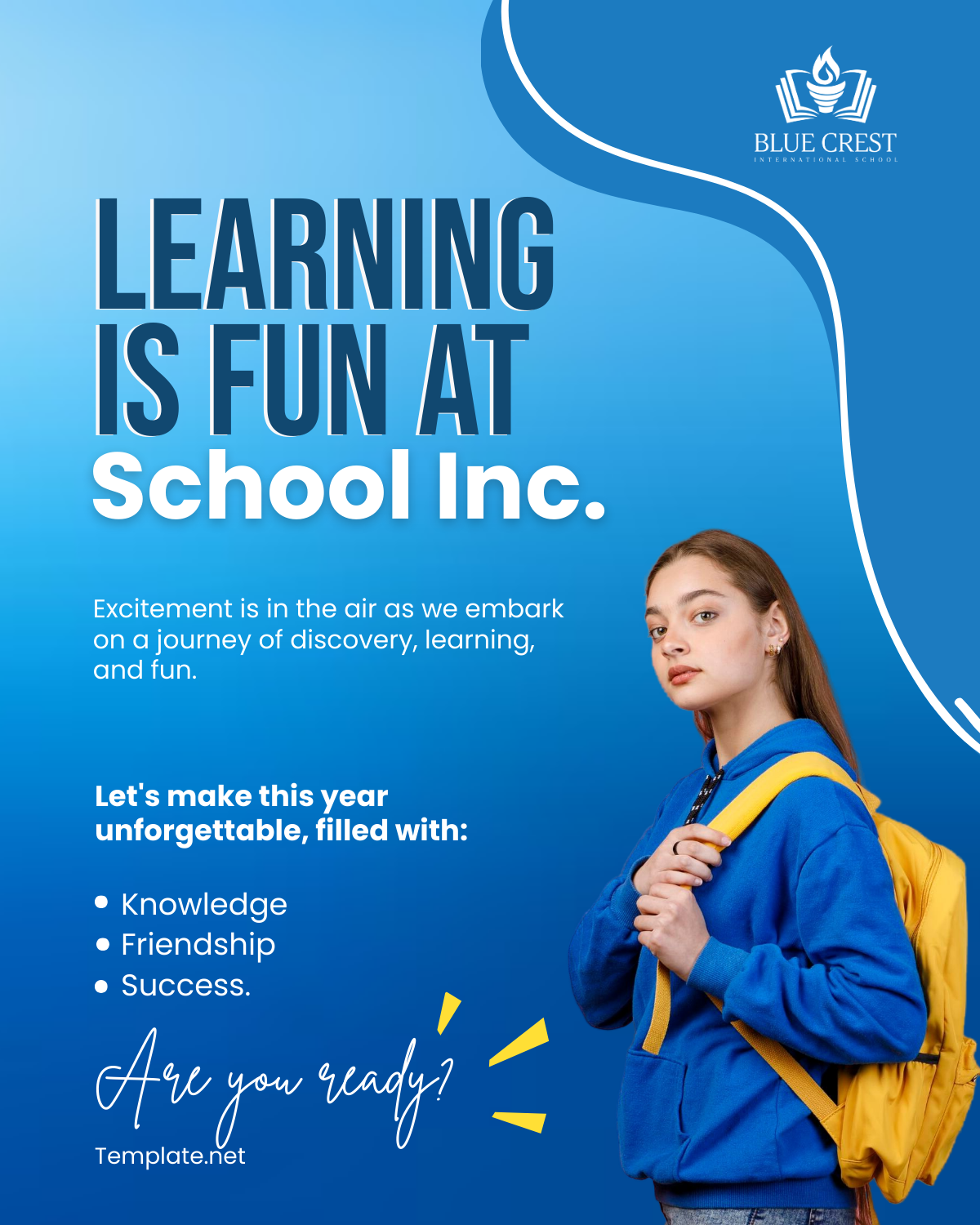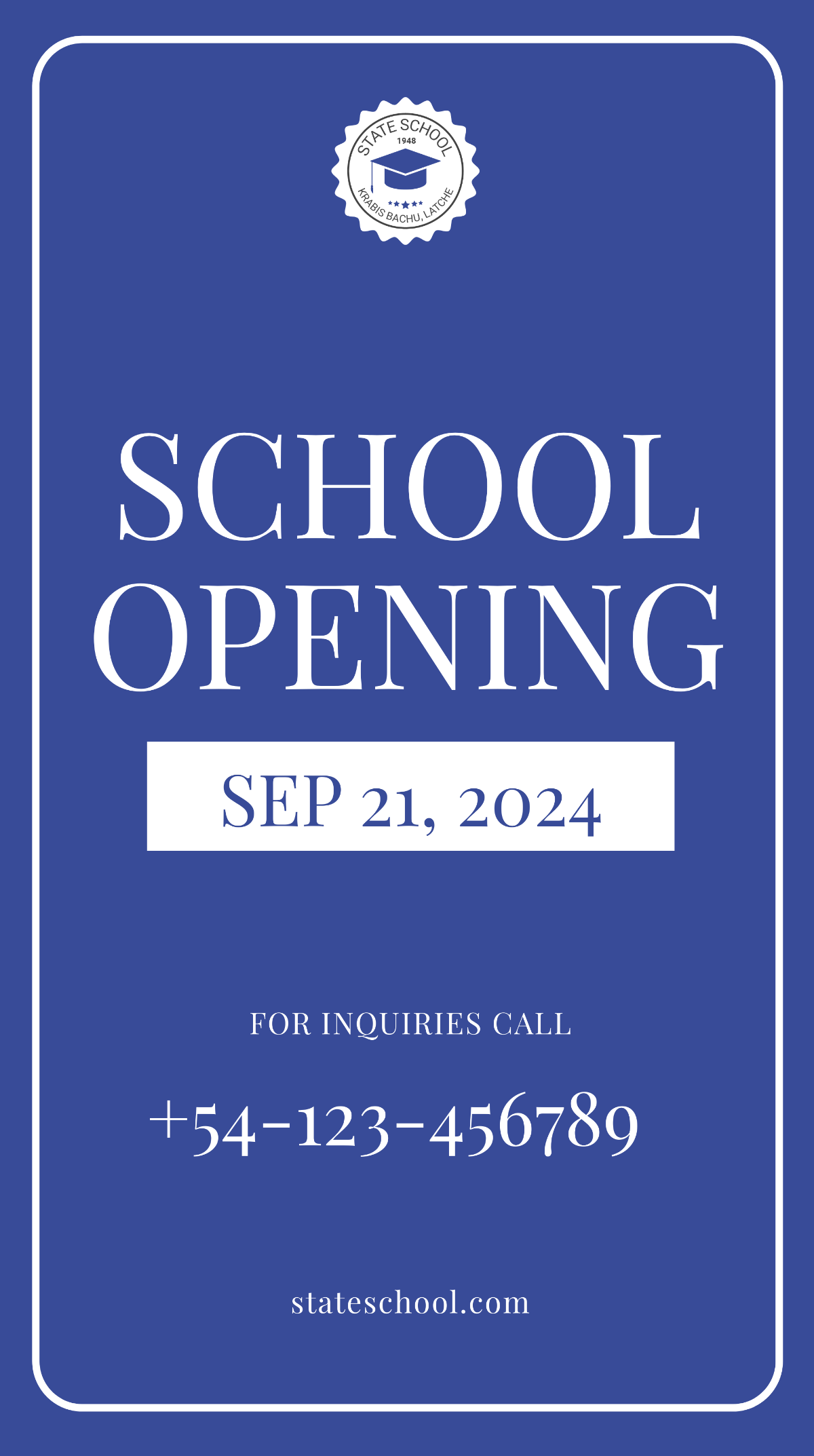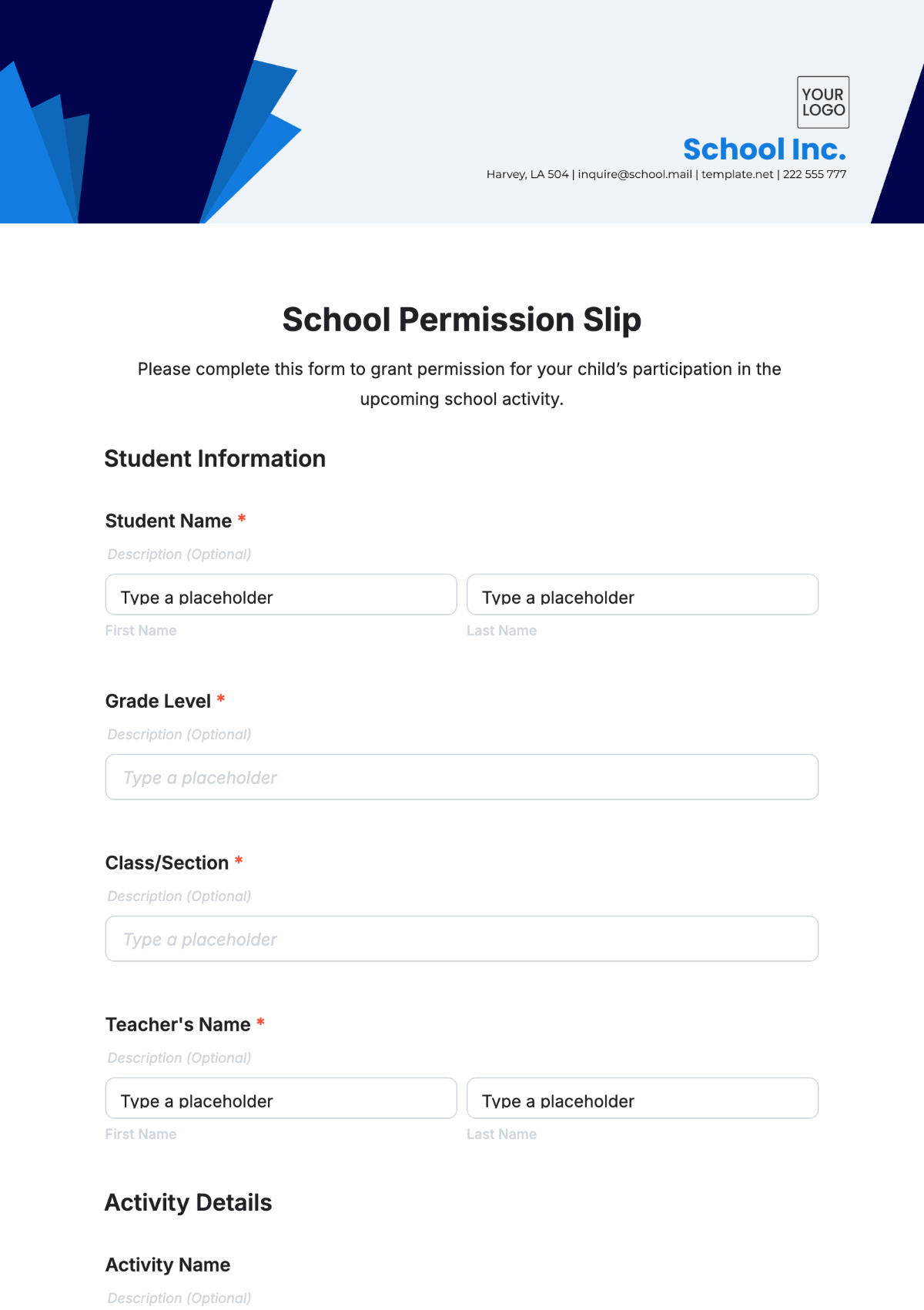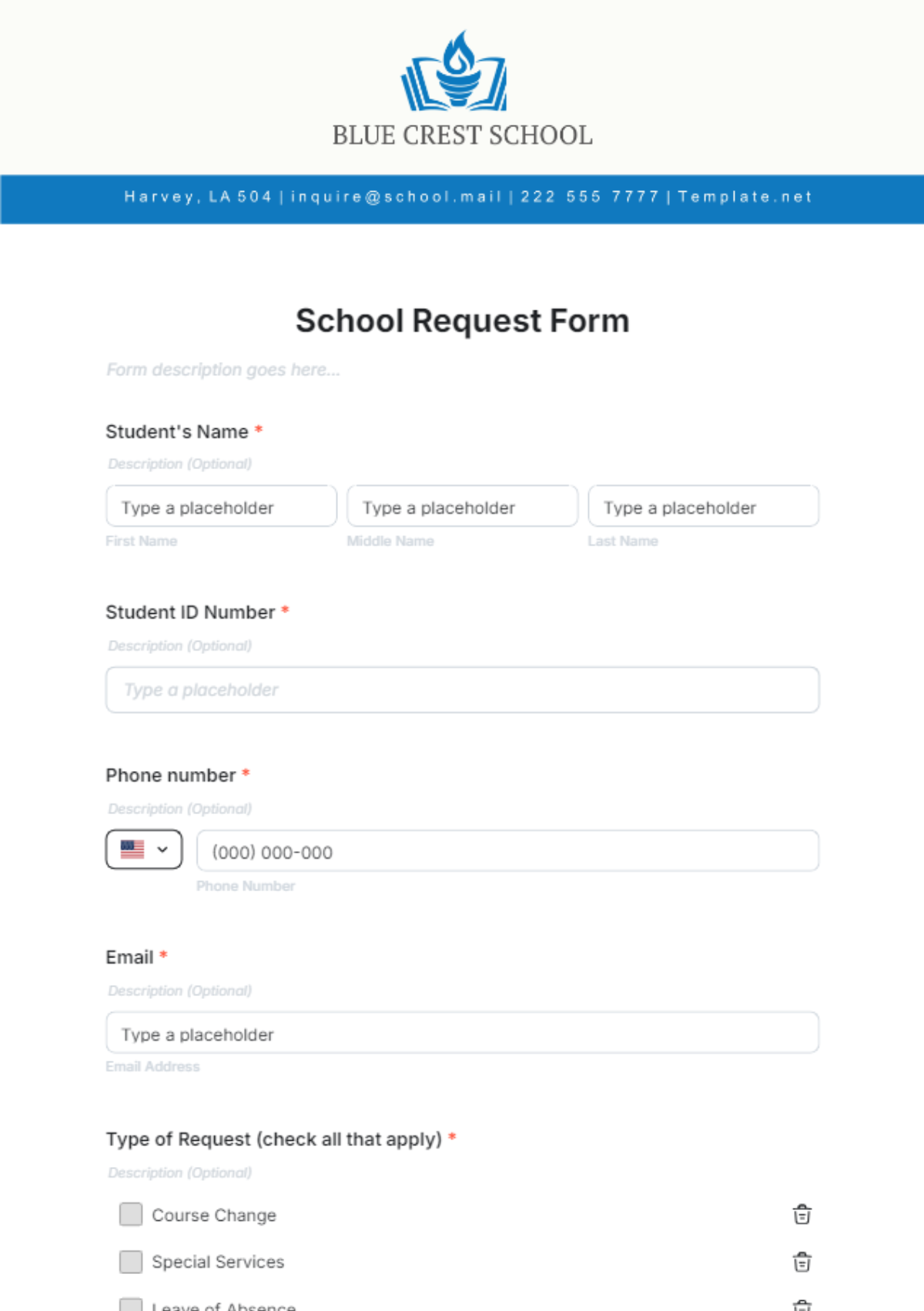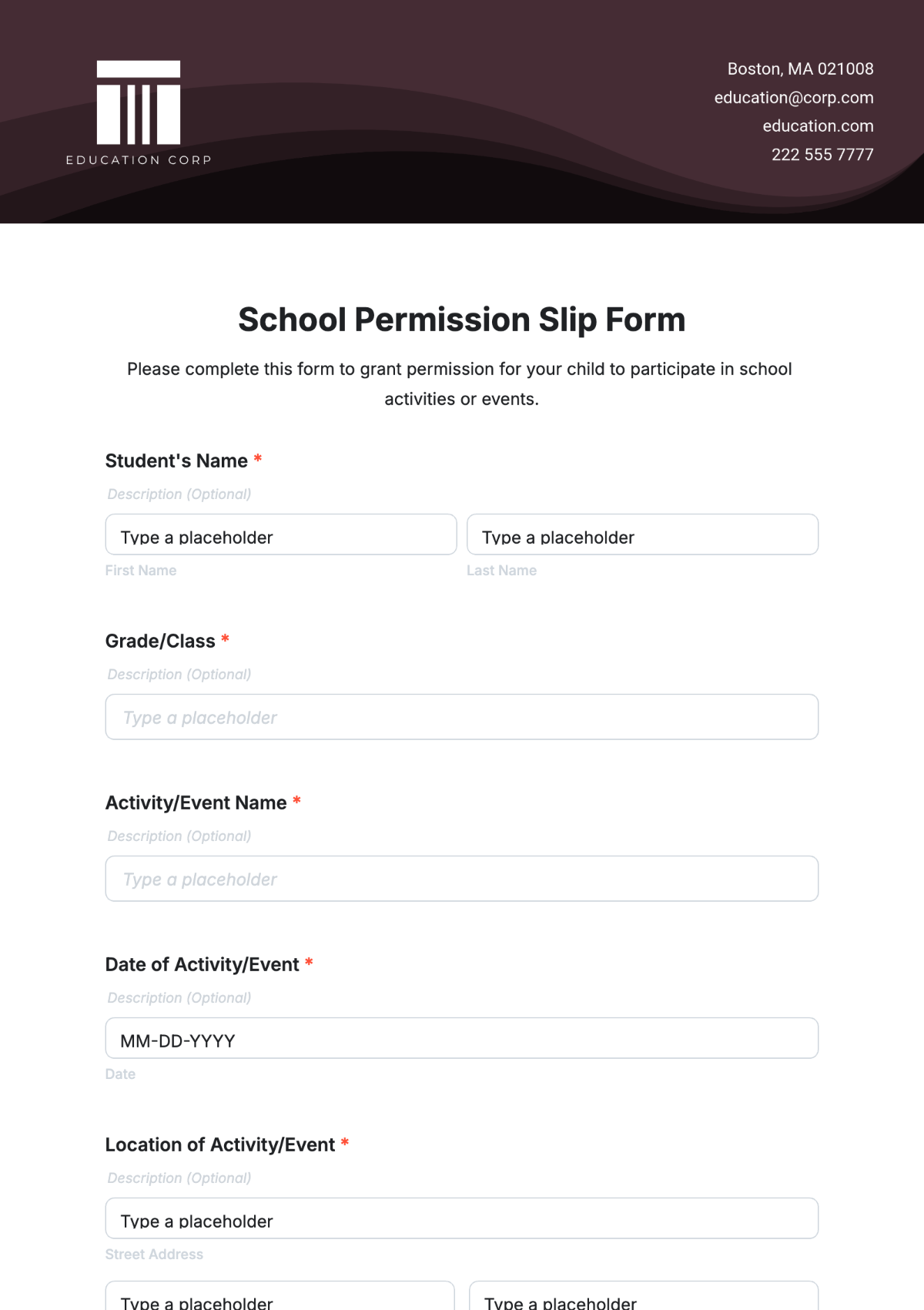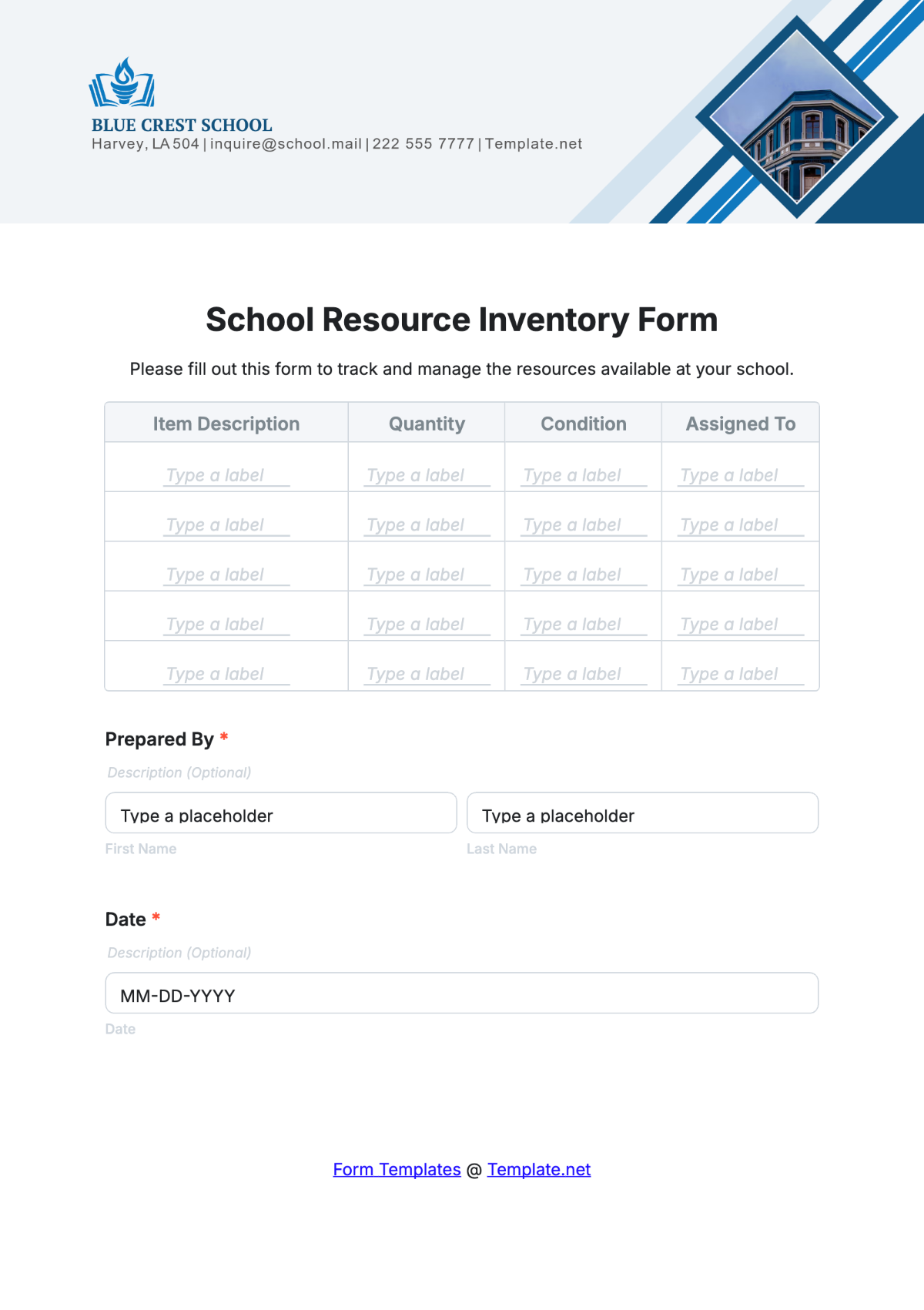School Student Guide
I. Introduction
A. Purpose
Provide Information: This guide aims to provide essential information to help students navigate their school experience effectively. It includes policies, procedures, and resources available to students.
Enhance Experience: By understanding the school's expectations and available support, students can maximize their academic and extracurricular involvement.
Support Success: The guide serves as a resource to support students in achieving their academic and personal goals.
B. Scope
Comprehensive Coverage: This guide covers all aspects of student life, including academic policies, extracurricular activities, and available support services. It is intended to be a complete reference for students.
Applicable to All: The guidelines and information herein apply to all students at [Your Company Name], ensuring a consistent and fair approach.
Regular Updates: The content of this guide will be reviewed and updated regularly to reflect any changes in school policies or procedures.
C. Target Audience
All Students: This guide is intended for all current and prospective students of [Your Company Name]. It is designed to address the needs and concerns of students at all grade levels.
Parents and Guardians: While primarily for students, parents and guardians can also use this guide to better understand school policies and support their children’s education.
Staff and Faculty: Teachers and administrative staff can refer to this guide to ensure they are aligned with the school’s policies and can provide accurate information to students.
Understanding the purpose, scope, and target audience of this guide is crucial for effectively utilizing the information provided. This guide is designed to support all members of the school community, ensuring a cohesive and informed environment.
II. Academic Policies
The following table provides an overview of the key academic policies:
No. | Policy | Description |
|---|---|---|
1 | Attendance | Requirements for student attendance and consequences for absences. |
2 | Grading | Overview of the grading system and assessment criteria. |
3 | Academic Integrity | Policies on cheating, plagiarism, and academic honesty. |
4 | Homework and Assignments | Guidelines for the submission and grading of homework and assignments. |
A. Attendance
Mandatory Attendance: Students are required to attend all classes regularly. Regular attendance is crucial for academic success and participation.
Excused Absences: Notify the school in advance for excused absences such as medical appointments or family emergencies. Proper notification ensures absences are recorded correctly.
Unexcused Absences: Unexcused absences may result in disciplinary action. Consistent unexcused absences can impact academic performance and standing.
B. Grading
Grading Scale: Understand the school’s grading scale and criteria for assessments. Knowing the grading system helps students set academic goals.
Assessment Methods: Be aware of various assessment methods used, including tests, projects, and participation. Diverse assessment methods provide multiple ways to demonstrate understanding.
Grade Appeals: Students can appeal grades they believe are incorrect. A formal appeal process ensures fair evaluation and resolution of grading disputes.
C. Academic Integrity
No Cheating: Students must not engage in any form of cheating during exams or assignments. Academic integrity is fundamental to fair and valid assessment.
Avoid Plagiarism: Always credit original sources in your work to avoid plagiarism. Proper citation practices uphold the value of original thought and scholarship.
Report Violations: Report any observed violations of academic integrity to the faculty. Reporting ensures the integrity of the academic environment.
D. Homework and Assignments
Submission Deadlines: Submit all homework and assignments by the specified deadlines. Timely submission is crucial for maintaining academic progress.
Quality Standards: Ensure all work meets the quality standards outlined by teachers. High-quality work demonstrates understanding and effort.
Seek Help: If you encounter difficulties, seek help from teachers or peers. Seeking assistance can improve understanding and performance.
Understanding and adhering to academic policies is essential for academic success. These policies help maintain a fair and supportive educational environment, encouraging students to achieve their best.
III. Extracurricular Activities
The following table highlights the variety of extracurricular activities available:
No. | Activity | Description |
|---|---|---|
1 | Sports Teams | Various sports teams students can join. |
2 | Clubs and Societies | Different clubs and societies catering to diverse interests. |
3 | Music and Arts Programs | Opportunities for students interested in music and arts. |
4 | Community Service | Programs for students to engage in community service activities. |
A. Sports Teams
Join a Team: Students can join various sports teams, including soccer, basketball, and volleyball. Participation in sports promotes physical fitness and teamwork.
Practice Sessions: Regular practice sessions are mandatory for team members. Consistent practice improves skills and team cohesion.
Compete in Events: Teams compete in inter-school and district-level events. Competing in events provides opportunities to showcase talent and school spirit.
B. Clubs and Societies
Explore Interests: Students can join clubs that match their interests, such as debate, science, or drama. Clubs offer a platform to explore and develop personal interests.
Leadership Roles: Take on leadership roles within clubs to develop organizational and leadership skills. Leadership roles enhance personal growth and responsibility.
Club Activities: Participate in club activities and events to gain experience and enjoyment. Active participation enriches the school experience.
C. Music and Arts Programs
Join Ensembles: Students can join musical ensembles such as band, choir, or orchestra. Joining ensembles fosters musical talent and collaboration.
Art Classes: Enroll in art classes to develop skills in drawing, painting, or sculpture. Art classes provide a creative outlet and skill development.
Performances and Exhibitions: Participate in performances and art exhibitions to showcase your work. Showcasing talent boosts confidence and recognition.
D. Community Service
Volunteer Opportunities: Engage in volunteer opportunities organized by the school. Volunteering helps develop a sense of responsibility and community awareness.
Service Projects: Participate in service projects that address local community needs. Service projects provide practical experience in making a positive impact.
Recognition: Earn recognition for your community service contributions. Recognition motivates continued involvement and highlights achievements.
Extracurricular activities play a crucial role in the holistic development of students. They provide opportunities to develop new skills, build friendships, and contribute to the community, enriching the overall school experience.
IV. Health and Wellness
The following table outlines the health and wellness services available at the school:
No. | Service | Description |
|---|---|---|
1 | School Nurse | On-site nurse available for health concerns and emergencies. |
2 | Counseling Services | Professional counselors available for mental health support. |
3 | Wellness Programs | Programs aimed at promoting physical and mental wellness. |
4 | Nutrition Guidance | Access to nutrition advice and healthy eating programs. |
A. School Nurse
Health Consultations: Students can visit the school nurse for health consultations. The nurse provides care for minor injuries and illnesses.
Emergency Care: In case of emergencies, the nurse provides immediate care and coordinates further medical assistance. Prompt emergency care is vital for student safety.
Health Records: Maintain accurate health records for each student. Accurate records help in providing appropriate care and managing health issues.
B. Counseling Services
Mental Health Support: Professional counselors are available for mental health support. Counselors provide a safe space to discuss emotional and psychological concerns.
Confidentiality: Counseling sessions are confidential, ensuring privacy for students. Confidentiality encourages students to seek help without fear of exposure.
Group Sessions: Participate in group counseling sessions if needed. Group sessions provide support and understanding among peers facing similar issues.
C. Wellness Programs
Physical Activities: Engage in physical activities such as yoga, aerobics, and fitness classes. Regular physical activity promotes overall health and well-being.
Stress Management: Attend workshops on stress management techniques. Learning to manage stress is crucial for maintaining mental health.
Health Education: Participate in health education programs that cover topics like hygiene, nutrition, and mental health. Education empowers students to make informed health choices.
D. Nutrition Guidance
Healthy Eating: Access nutrition advice to learn about healthy eating habits. Proper nutrition is essential for physical and mental performance.
Meal Plans: Follow school-provided meal plans that cater to balanced diets. Meal plans ensure students receive the necessary nutrients.
Dietary Support: Seek dietary support for any specific nutritional needs or restrictions. Personalized support helps manage dietary conditions effectively.
Health and wellness services are integral to supporting the physical and mental well-being of students. By taking advantage of these services, students can maintain good health, manage stress, and perform better academically and personally.
V. Safety and Security
The following table provides an overview of the safety and security measures in place at the school:
No. | Measure | Description |
|---|---|---|
1 | Visitor Management | Procedures for managing visitors to ensure student safety. |
2 | Emergency Drills | Regular drills for emergencies like fire, earthquake, and lockdowns. |
3 | Security Personnel | Presence of trained security personnel on campus. |
4 | Safety Protocols | Comprehensive safety protocols for various scenarios. |
A. Visitor Management
Visitor Check-In: All visitors must check in at the main office. This process helps monitor who is on campus at any time.
Visitor Badges: Issue visitor badges to all approved visitors. Badges ensure that only authorized individuals are on school grounds.
Escort Policy: Visitors are often escorted by staff to their destinations. Escorting visitors helps maintain a secure environment.
B. Emergency Drills
Fire Drills: Conduct regular fire drills to practice evacuation procedures. Fire drills prepare students and staff for safe evacuation.
Earthquake Drills: Implement earthquake drills to teach safety during seismic events. Earthquake preparedness is crucial for regions prone to seismic activity.
Lockdown Drills: Practice lockdown drills for potential security threats. Lockdown drills ensure everyone knows the procedures to stay safe.
C. Security Personnel
On-Site Security: Trained security personnel are present on campus. Their presence deters potential security threats.
Patrols: Regular patrols are conducted to monitor the campus. Patrols help identify and address security issues promptly.
Emergency Response: Security personnel are trained to respond to emergencies. Quick response is essential for managing incidents effectively.
D. Safety Protocols
Incident Reporting: Report any safety incidents or concerns immediately. Prompt reporting helps address and resolve issues quickly.
Safety Training: Participate in safety training sessions provided by the school. Training ensures everyone knows how to respond in various situations.
Safety Audits: Conduct regular safety audits to identify potential hazards. Audits help maintain a safe and secure school environment.
Safety and security measures are essential to protect students, staff, and visitors. By adhering to these protocols, the school community can ensure a safe learning environment where everyone feels secure.
VI. Technology Use
The following table outlines the technology use policies and resources available:
No. | Policy | Description |
|---|---|---|
1 | Acceptable Use Policy | Guidelines for the acceptable use of school technology. |
2 | Device Usage | Rules regarding the use of personal and school-provided devices. |
3 | Internet Safety | Measures to ensure safe and responsible internet use. |
4 | Technical Support | Access to technical support for technology-related issues. |
A. Acceptable Use Policy
Responsible Use: Use school technology resources responsibly. Responsible use includes respecting equipment and using resources for educational purposes.
Prohibited Activities: Do not engage in prohibited activities such as accessing inappropriate content or unauthorized software. Adhering to guidelines ensures a safe digital environment.
Consequences: Understand the consequences of violating the acceptable use policy. Consequences may include loss of technology privileges or disciplinary action.
B. Device Usage
Personal Devices: Follow rules regarding the use of personal devices on campus. Personal device policies help minimize distractions and ensure academic focus.
School Devices: Use school-provided devices according to guidelines. Proper use extends the lifespan of school technology and ensures availability for all students.
Care and Maintenance: Take care of all devices to avoid damage. Proper maintenance helps prevent technical issues and extends device usability.
C. Internet Safety
Safe Browsing: Practice safe browsing by avoiding suspicious websites. Safe browsing habits protect against malware and cyber threats.
Personal Information: Do not share personal information online. Protecting personal information is crucial for maintaining privacy and security.
Reporting Issues: Report any internet safety issues or cyberbullying immediately. Prompt reporting helps address problems and maintain a safe online environment.
D. Technical Support
Access Help: Access technical support for any technology-related issues. Support services are available to assist with troubleshooting and repairs.
Report Problems: Report any technical problems as soon as they occur. Early reporting helps prevent further issues and downtime.
Follow Instructions: Follow the instructions provided by technical support staff. Proper guidance ensures issues are resolved efficiently.
Understanding and following technology use policies is vital for maintaining a productive and safe digital environment. Proper use of technology resources supports academic success and fosters responsible digital citizenship.
VII. Code of Conduct
The following table outlines the key components of the school’s code of conduct:
No. | Component | Description |
|---|---|---|
1 | Respect | Guidelines for respecting others and school property. |
2 | Responsibility | Expectations for responsible behavior and decision-making. |
3 | Integrity | Emphasis on honesty and ethical behavior. |
4 | Accountability | Holding oneself accountable for actions and consequences. |
A. Respect
Respect Others: Treat all students, staff, and visitors with respect. Respectful behavior fosters a positive and inclusive school environment.
Property Care: Take care of school property and resources. Proper care of property ensures that resources are available for everyone.
Diverse Perspectives: Respect diverse perspectives and backgrounds. Valuing diversity enriches the learning experience and promotes understanding.
B. Responsibility
Personal Responsibility: Take responsibility for your actions and behavior. Personal responsibility is key to developing maturity and accountability.
Academic Integrity: Maintain integrity in all academic work. Honest work reflects your true abilities and fosters a fair academic environment.
Community Contribution: Contribute positively to the school community. Positive contributions enhance the school environment for everyone.
C. Integrity
Honest Communication: Communicate honestly with peers and staff. Honesty builds trust and credibility.
Ethical Behavior: Engage in ethical behavior in all aspects of school life. Ethical behavior is fundamental to maintaining a positive school culture.
Conflict Resolution: Resolve conflicts respectfully and fairly. Effective conflict resolution maintains harmony and respect.
D. Accountability
Admit Mistakes: Admit mistakes and learn from them. Acknowledging mistakes is the first step towards personal growth.
Accept Consequences: Accept the consequences of your actions. Taking responsibility for consequences demonstrates maturity and accountability.
Seek Improvement: Continuously seek to improve behavior and performance. Striving for improvement leads to personal and academic success.
Adhering to the code of conduct is essential for creating a respectful and responsible school environment. These guidelines help students develop into well-rounded individuals who contribute positively to the school community and society.
VIII. Student Resources
The following table provides an overview of the student resources available:
No. | Resource | Description |
|---|---|---|
1 | Library | Access to books, journals, and digital resources. |
2 | Study Groups | Organized study groups for collaborative learning. |
3 | Tutoring Services | Availability of tutoring for academic support. |
4 | Career Counseling | Guidance on career planning and college applications. |
A. Library
Book Lending: Borrow books and other materials from the library. Access to a wide range of resources supports academic research and reading for pleasure.
Digital Resources: Utilize digital resources such as e-books and online databases. Digital resources provide convenient access to information.
Study Space: Use the library as a quiet space for study and research. A dedicated study space helps maintain focus and productivity.
B. Study Groups
Group Formation: Join or form study groups with peers. Collaborative learning enhances understanding through discussion and shared knowledge.
Scheduled Meetings: Attend scheduled study group meetings regularly. Regular meetings ensure consistent progress and support.
Shared Resources: Share study materials and resources within the group. Sharing resources maximizes the collective knowledge and aids learning.
C. Tutoring Services
One-on-One Tutoring: Access one-on-one tutoring for personalized academic support. Personalized tutoring addresses individual learning needs.
Subject-Specific Help: Seek help for specific subjects you find challenging. Focused tutoring improves comprehension and performance in difficult areas.
Flexible Scheduling: Schedule tutoring sessions at convenient times. Flexible scheduling accommodates students' busy timetables.
D. Career Counseling
Career Planning: Receive guidance on career planning and goal setting. Career counseling helps students make informed decisions about their futures.
College Applications: Get assistance with college applications and essays. Professional guidance improves the quality of applications.
Workshops and Seminars: Attend workshops and seminars on career-related topics. These events provide valuable insights and information.
Accessing and utilizing student resources is crucial for academic success and personal development. These resources provide support, enhance learning experiences, and help students plan for their future careers.
IX. Frequently Asked Questions (FAQs)
Q: How can I check out a book from the library?
A: Visit the library and use your student ID to check out books at the circulation desk.
Q: What should I do if I am absent from school?
A: Inform the school as soon as possible and provide a valid reason for your absence.
Q: How do I join a sports team?
A: Contact the sports department and sign up for tryouts during the designated period.
Q: Who do I speak to about career counseling?
A: Schedule an appointment with the career counseling office for personalized guidance.
Q: Where can I find information on school events?
A: Check the school calendar on the website or bulletin boards around campus.
Q: What is the procedure for reporting bullying?
A: Report bullying incidents to a teacher, counselor, or the administration immediately.
Q: How do I access online resources provided by the school?
A: Use your school credentials to log into the school’s digital library or online portals.
Q: What are the rules for using personal devices at school?
A: Personal devices must be used according to the school’s technology use policy.
Q: How can I get involved in community service?
A: Sign up for community service programs through the school’s service coordinator.
Q: What should I do if I experience a health issue at school?
A: Visit the school nurse for immediate assistance and follow their guidance.
